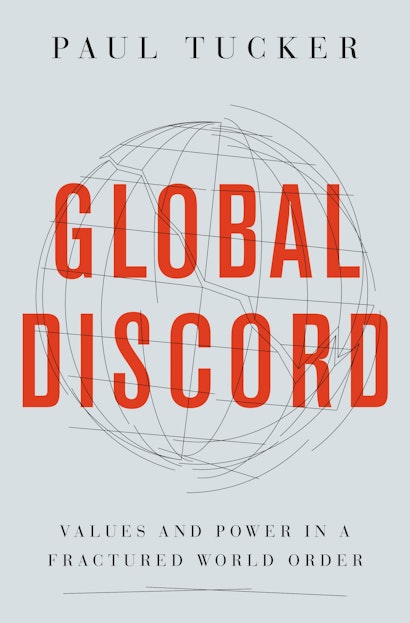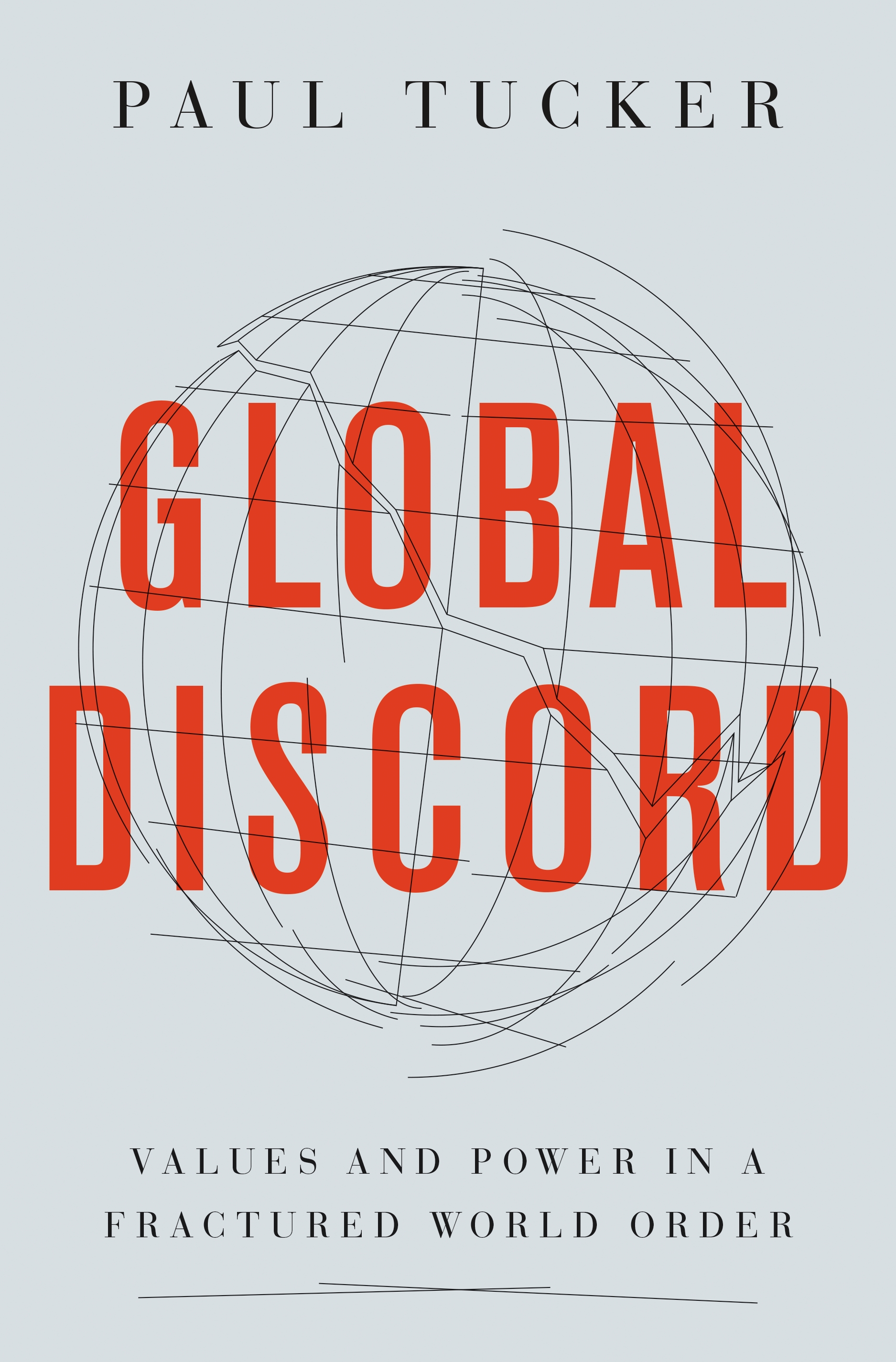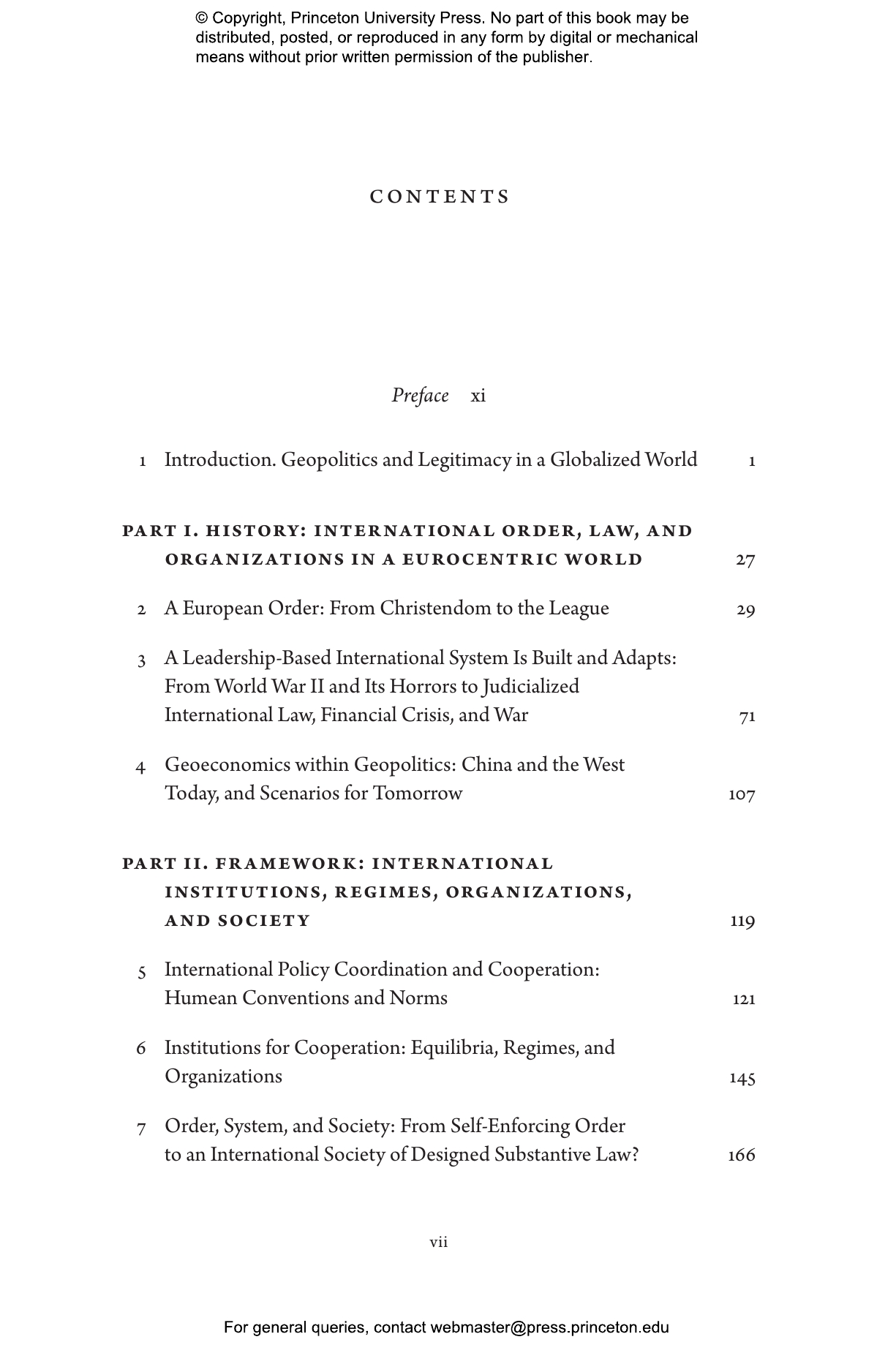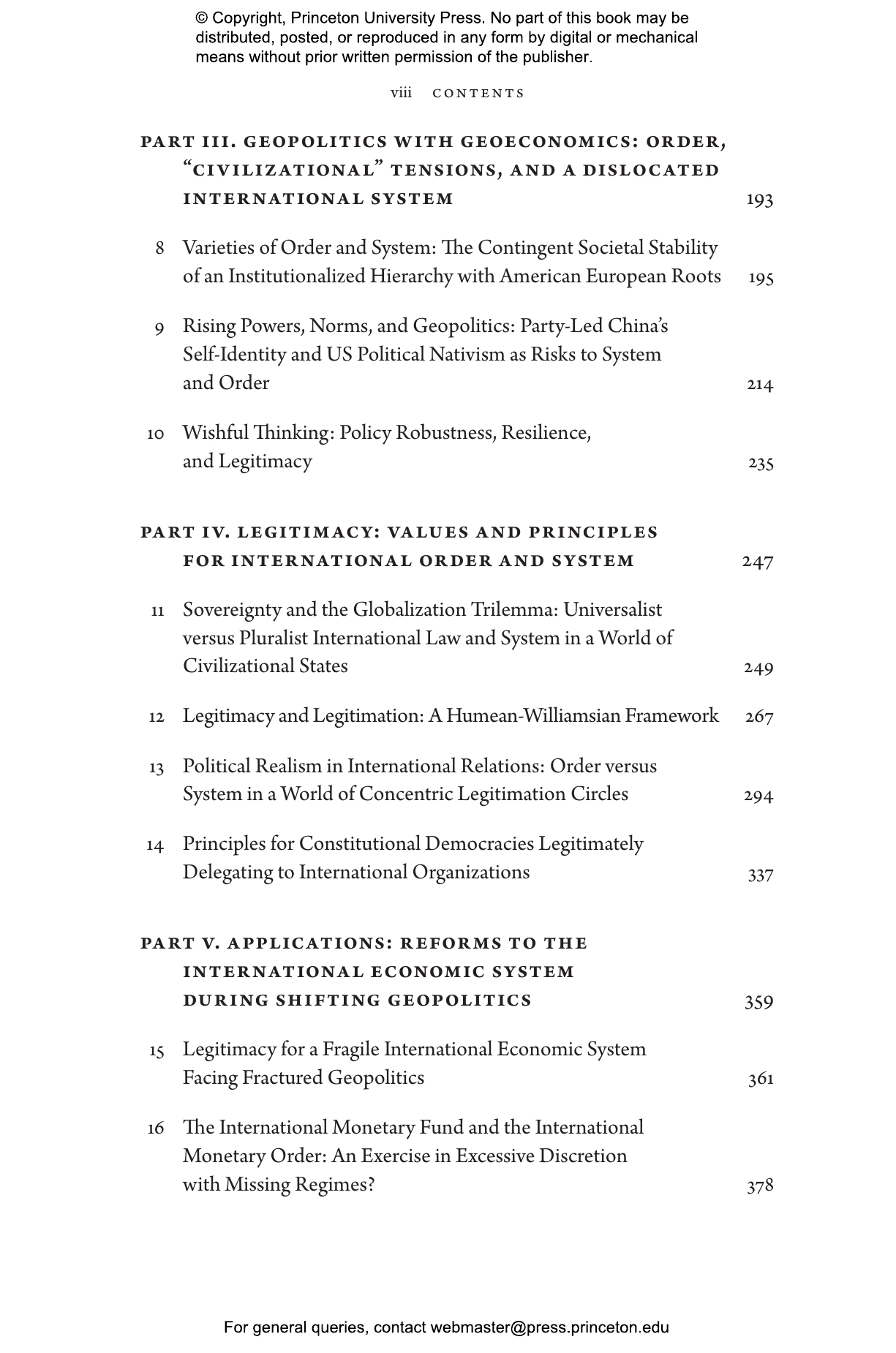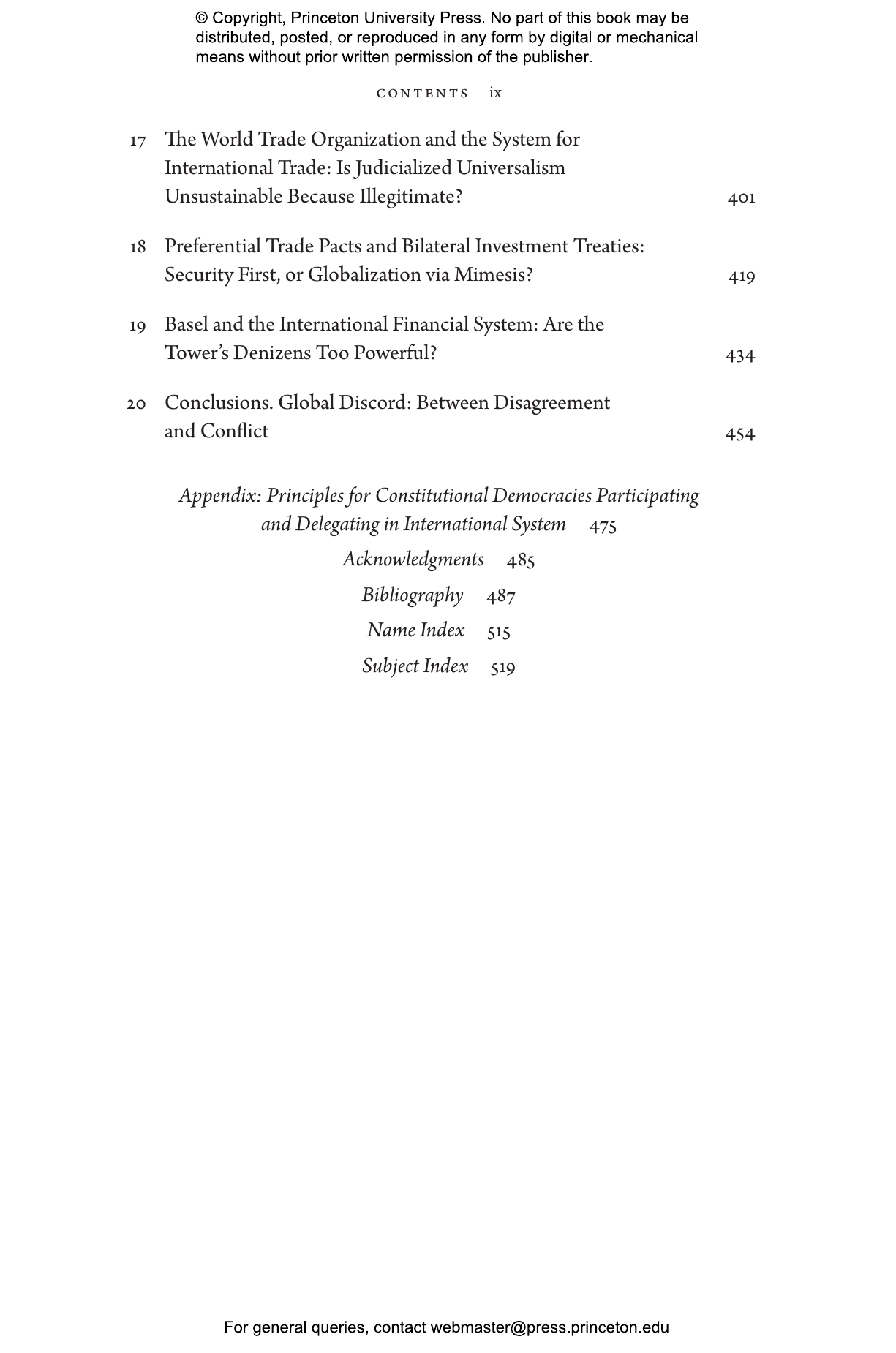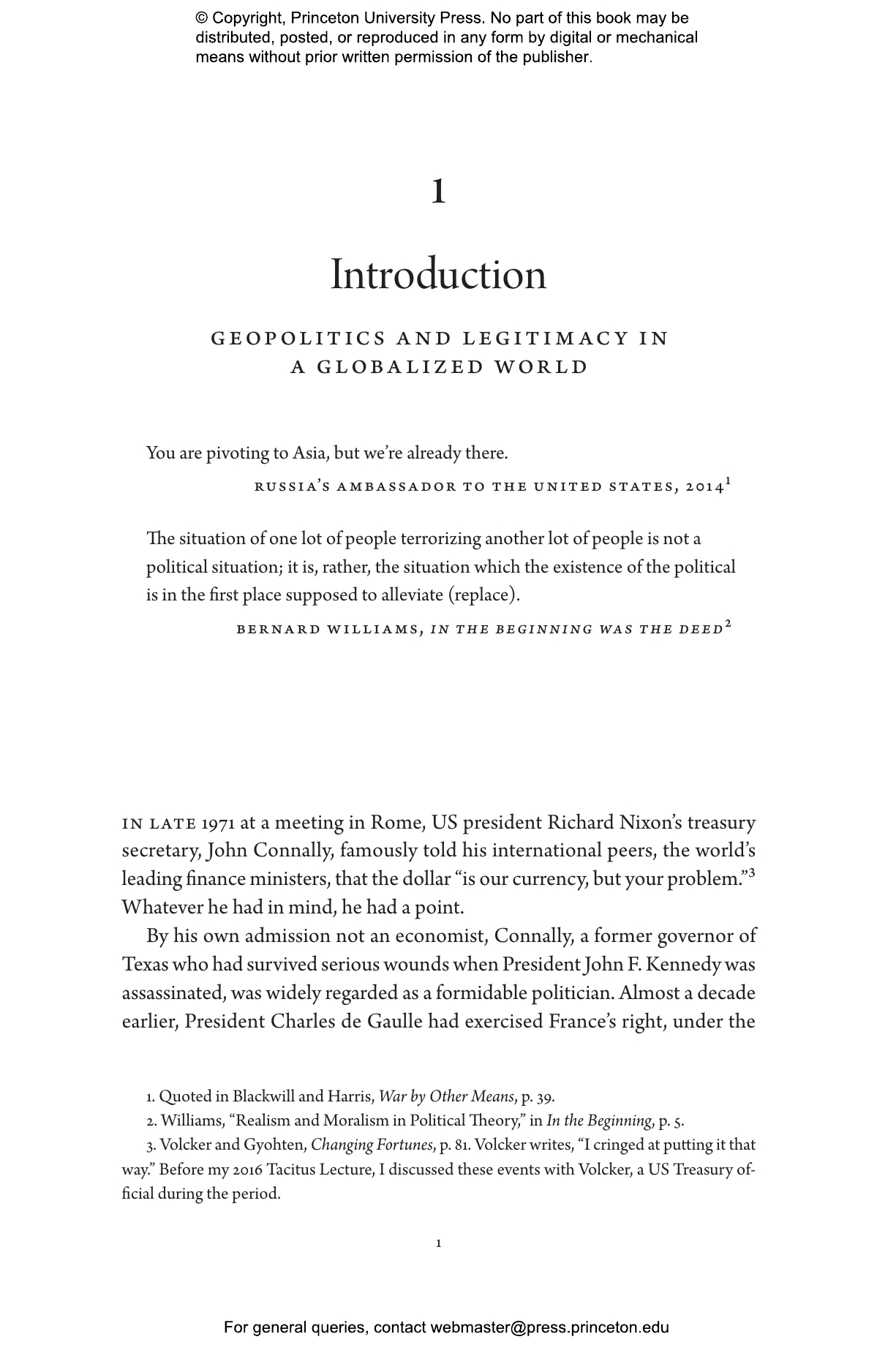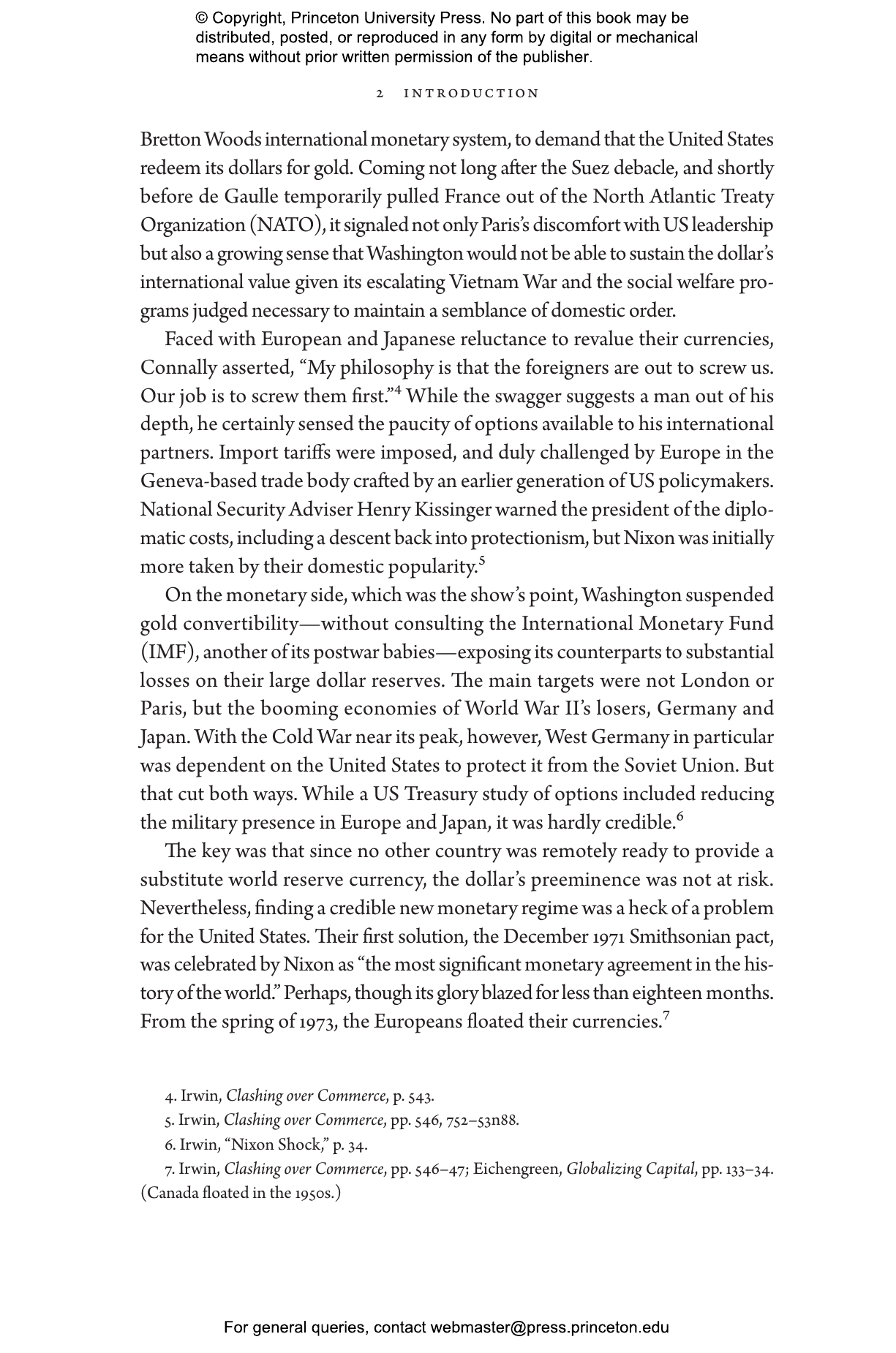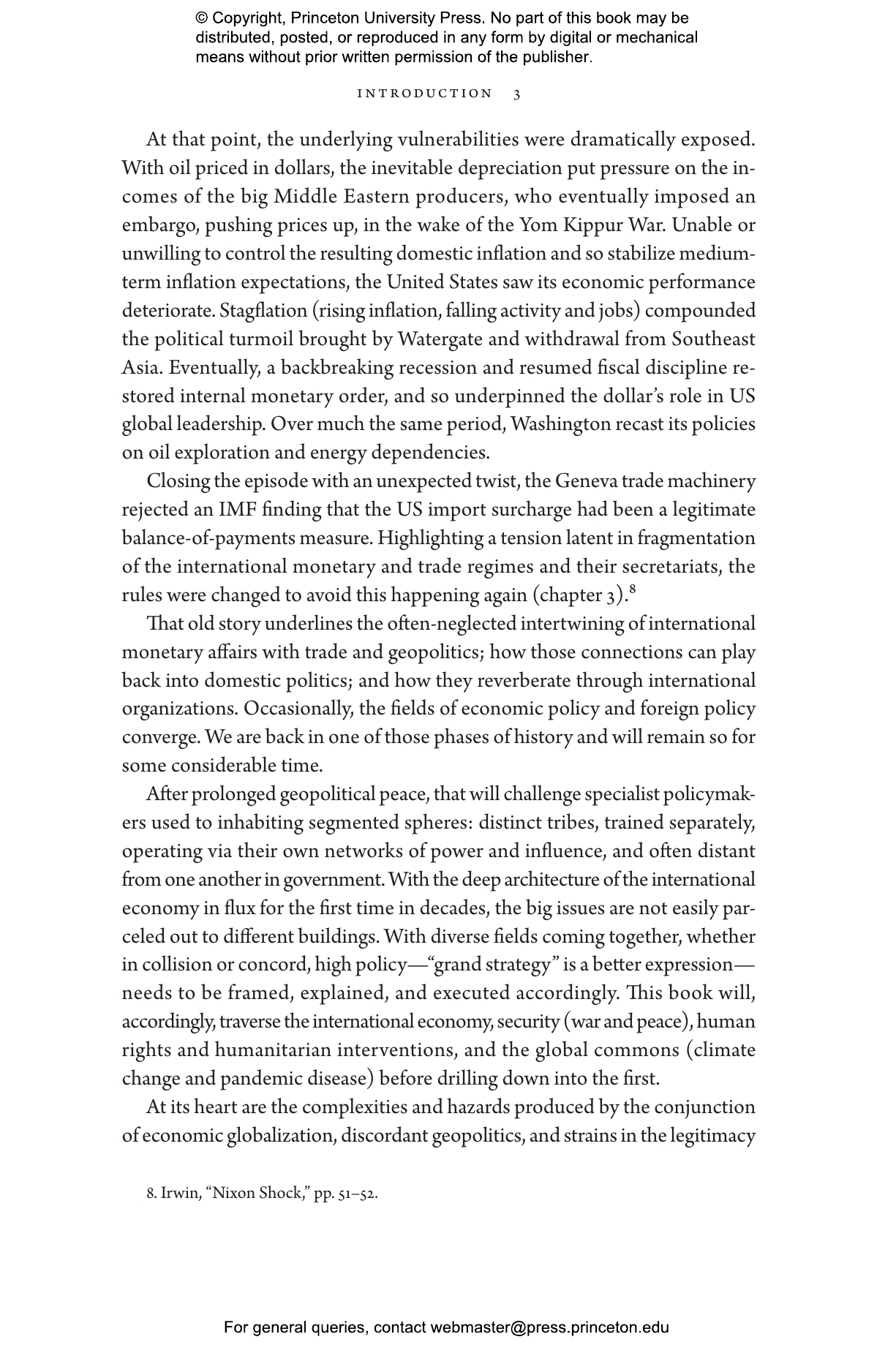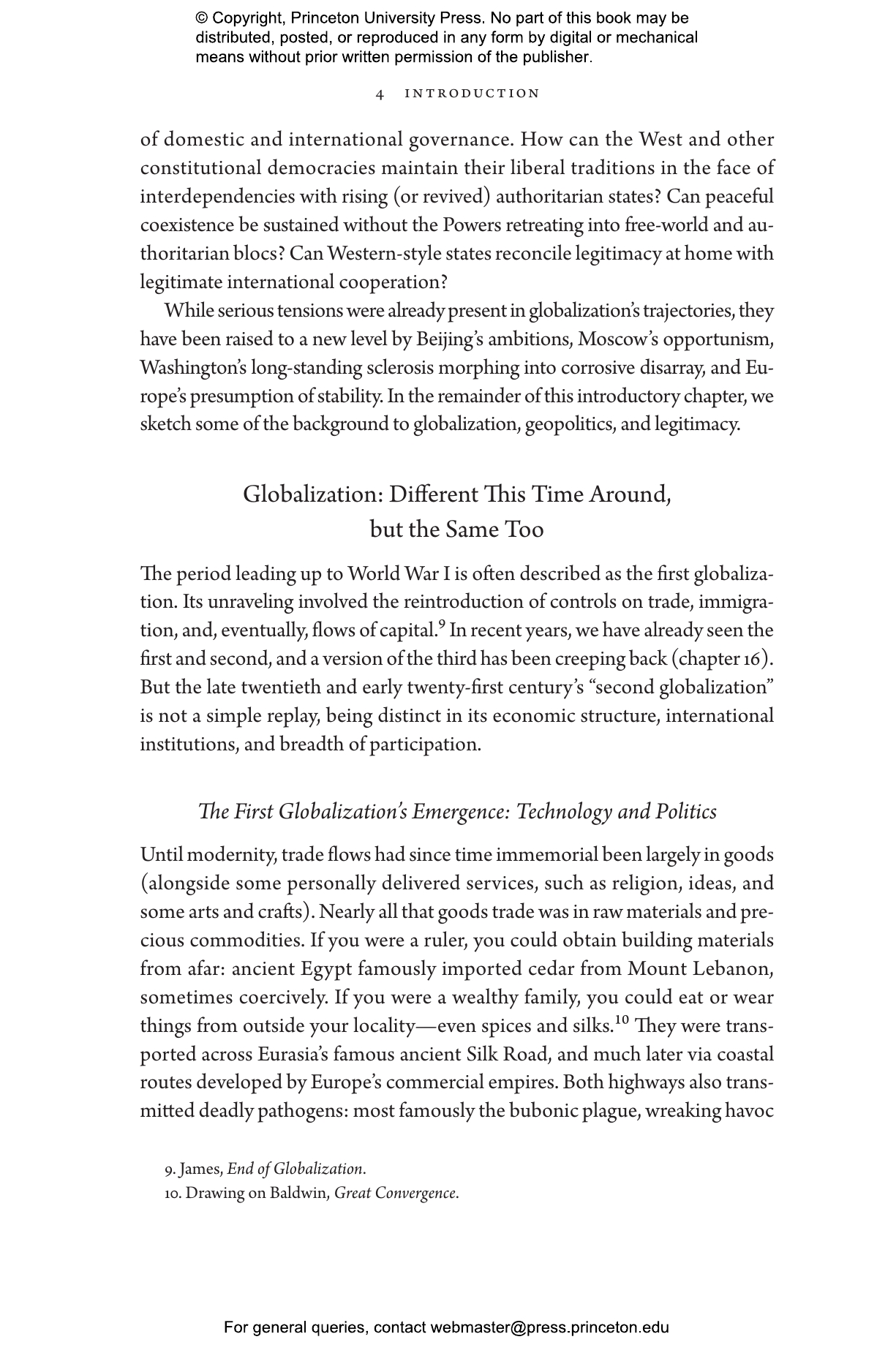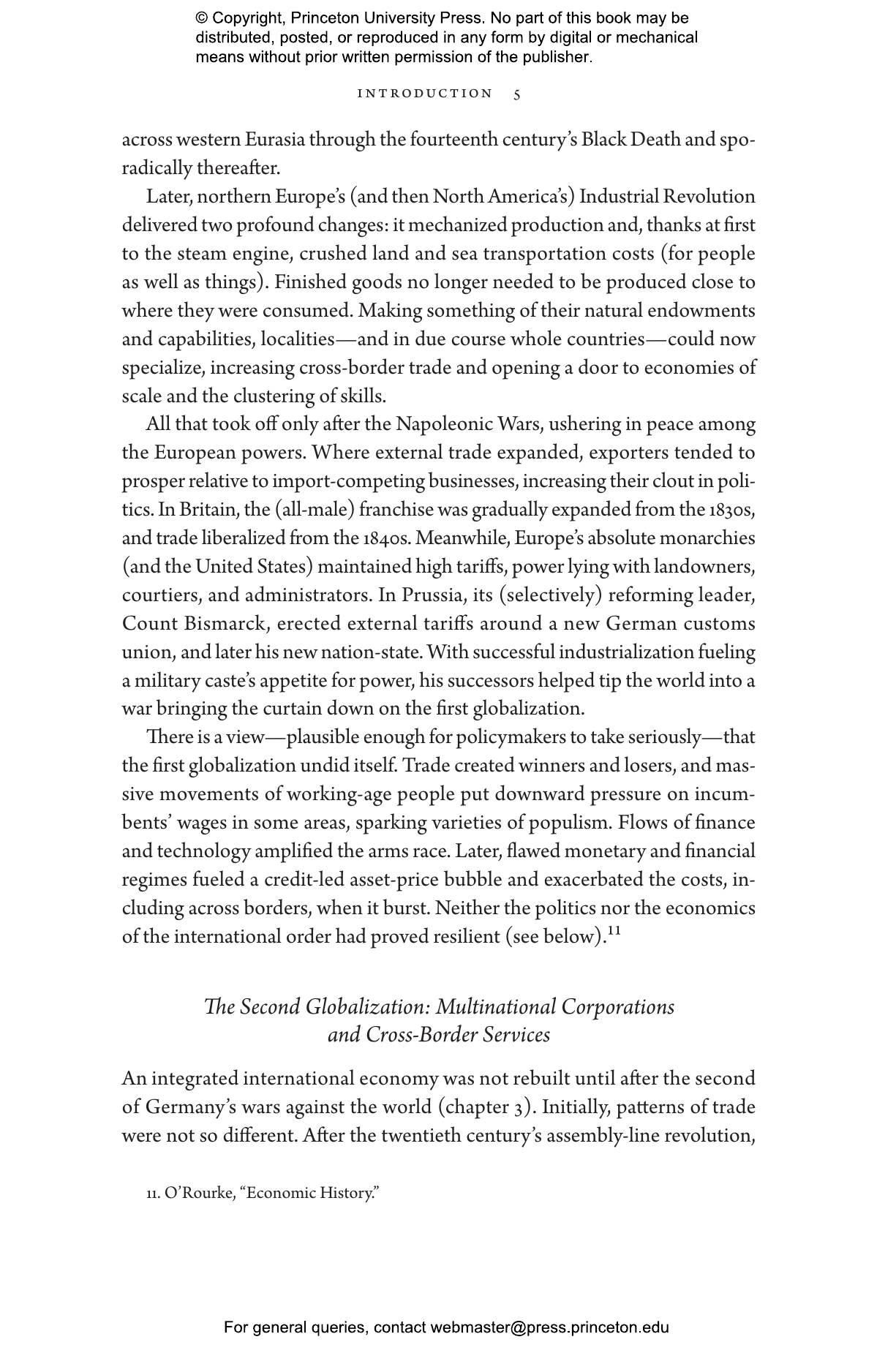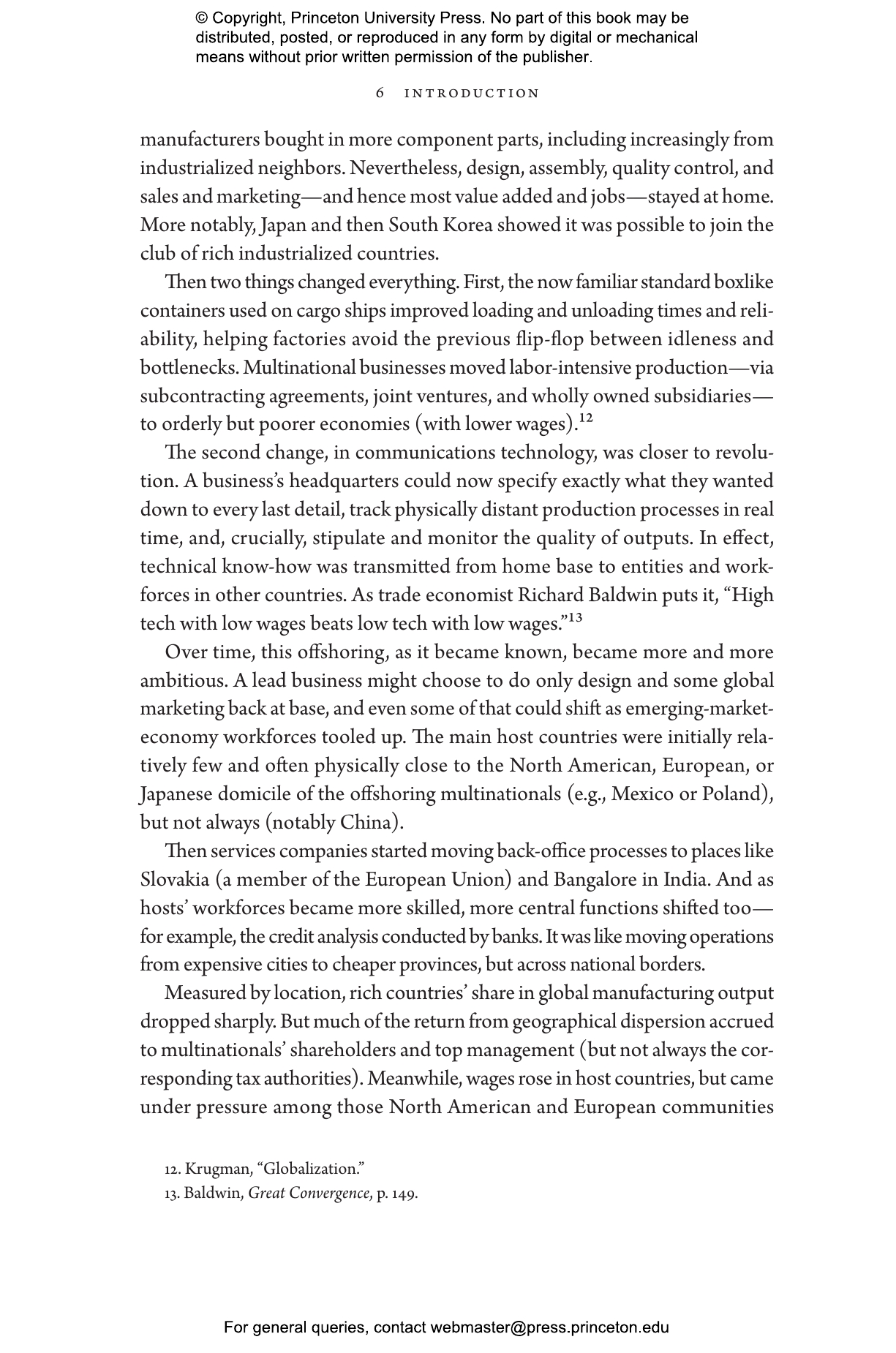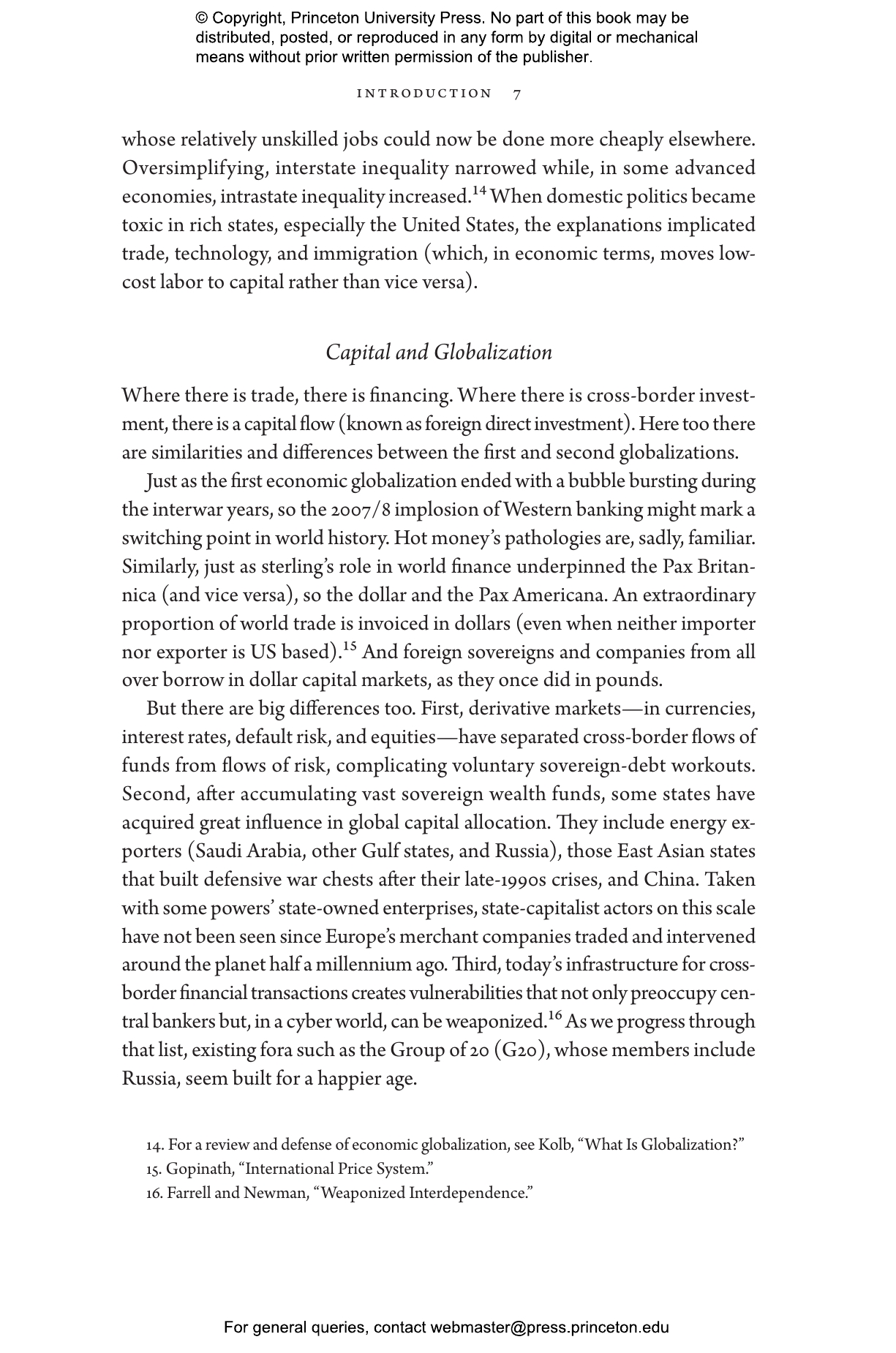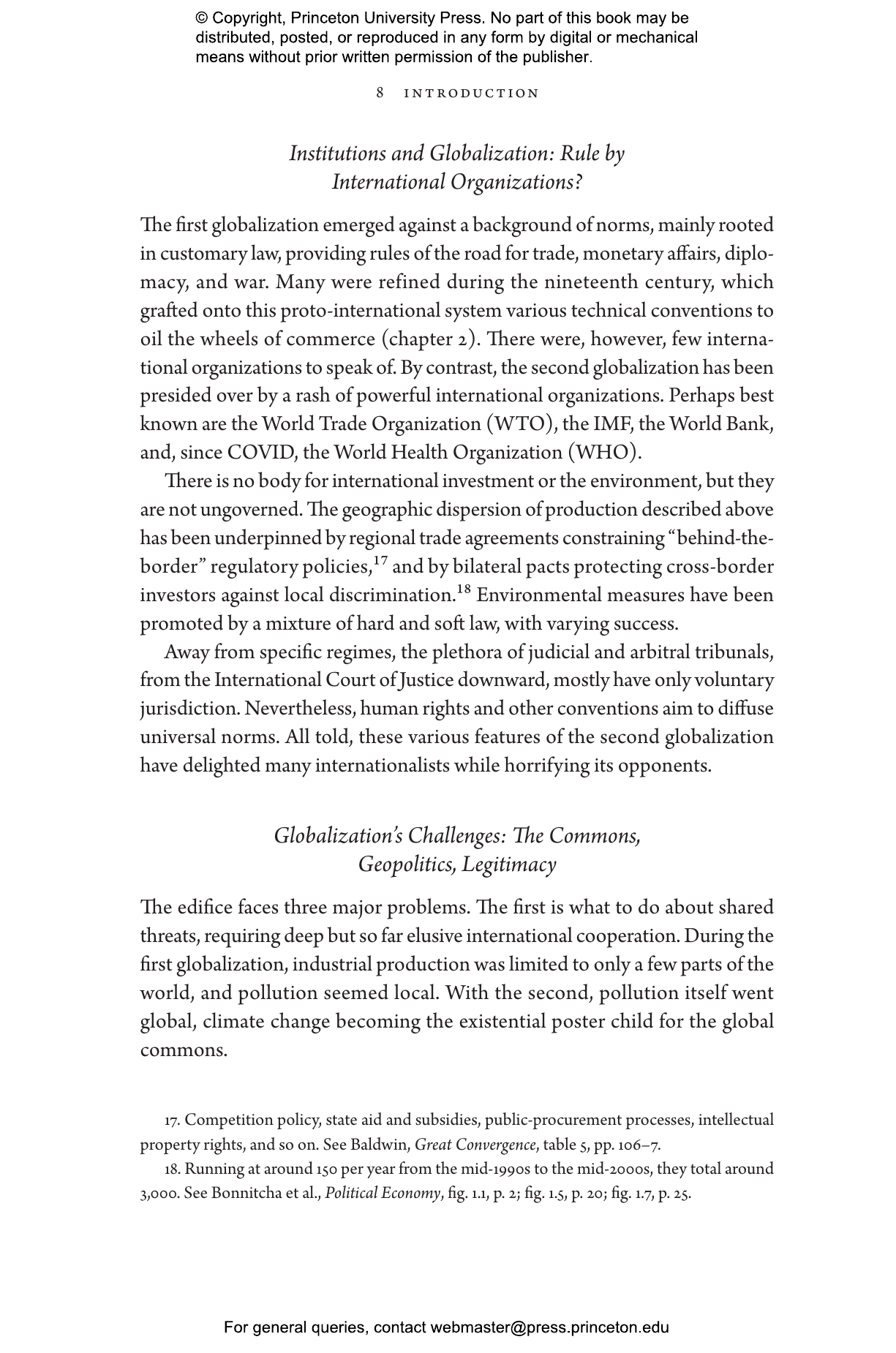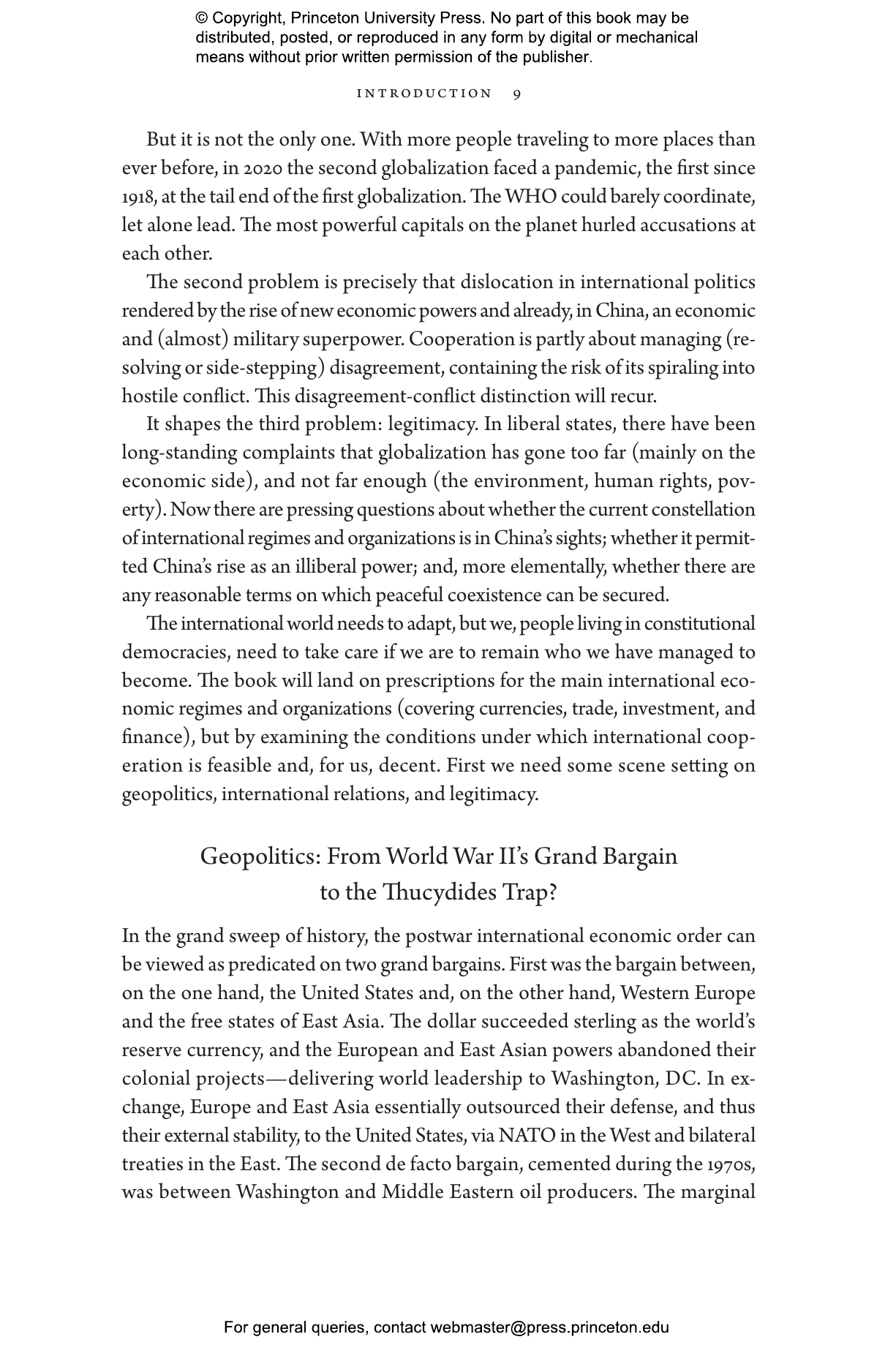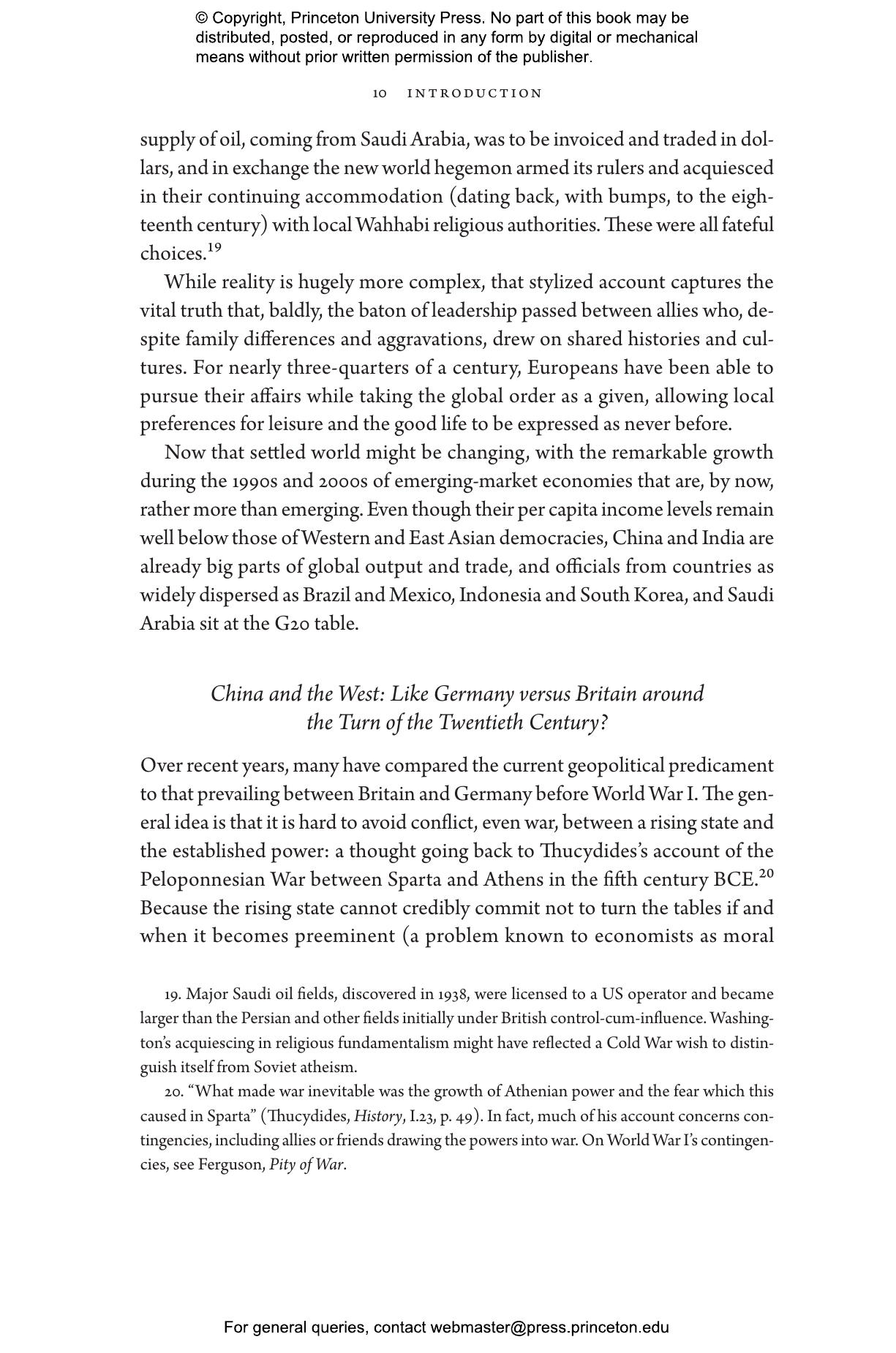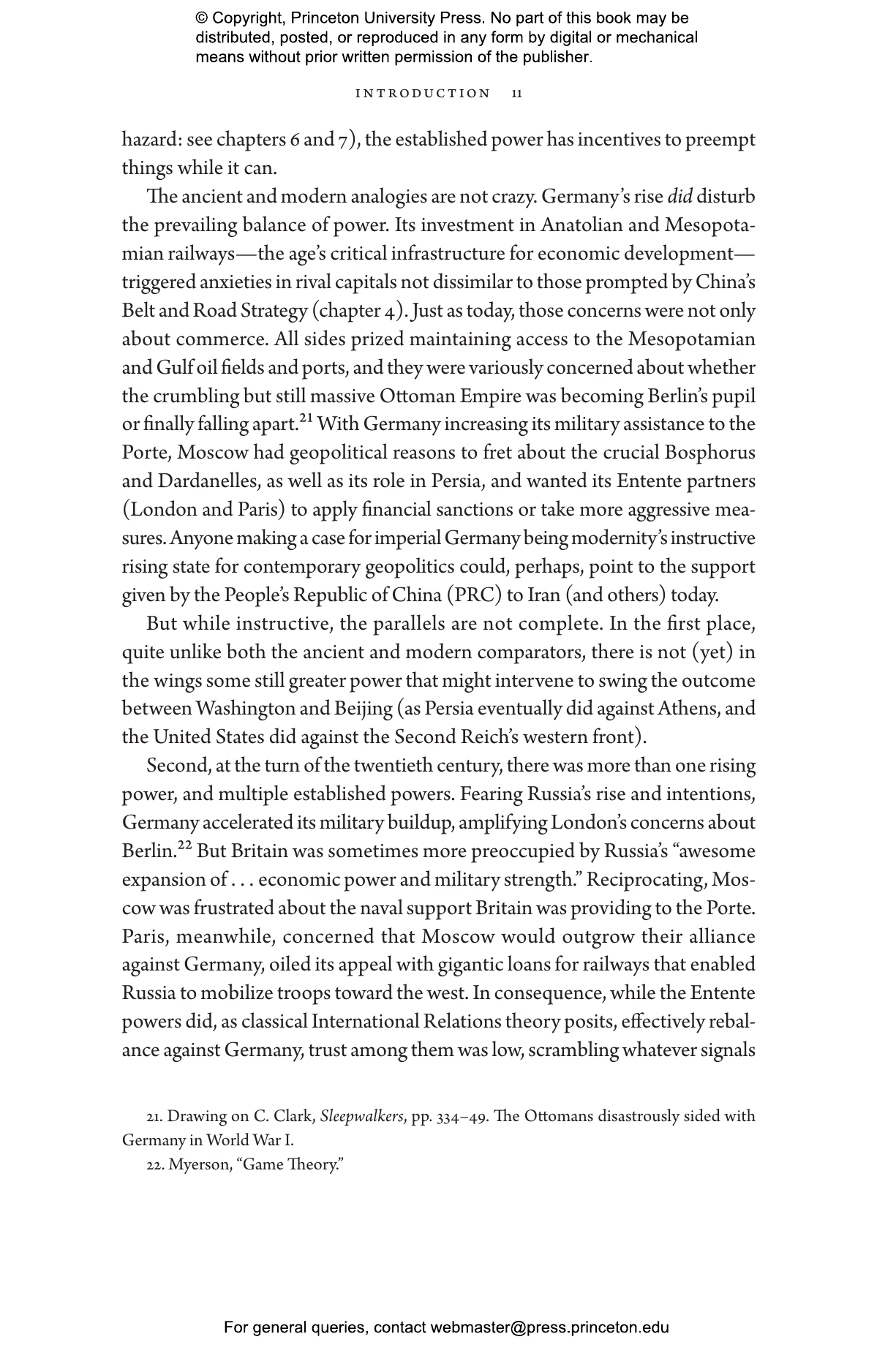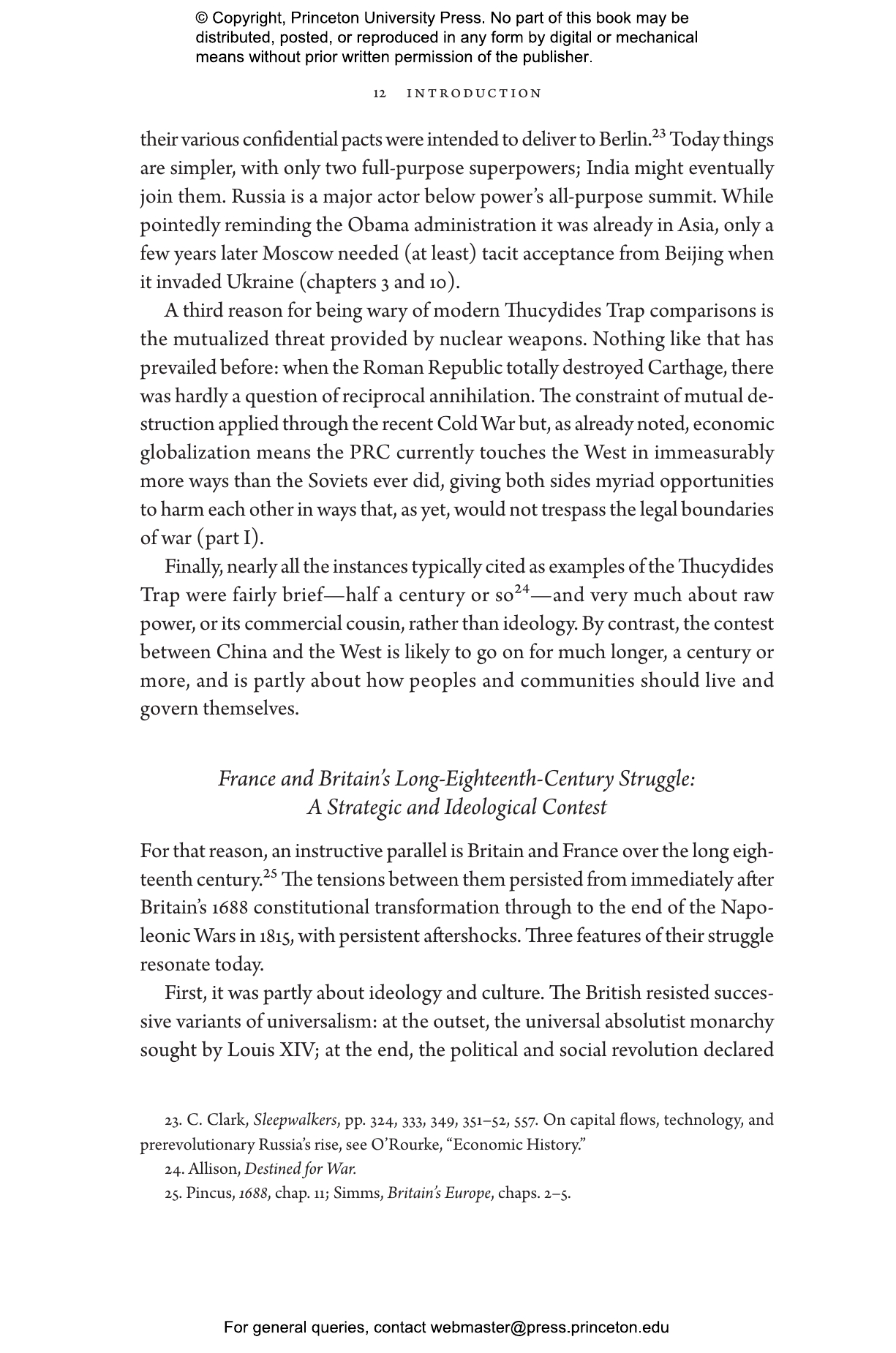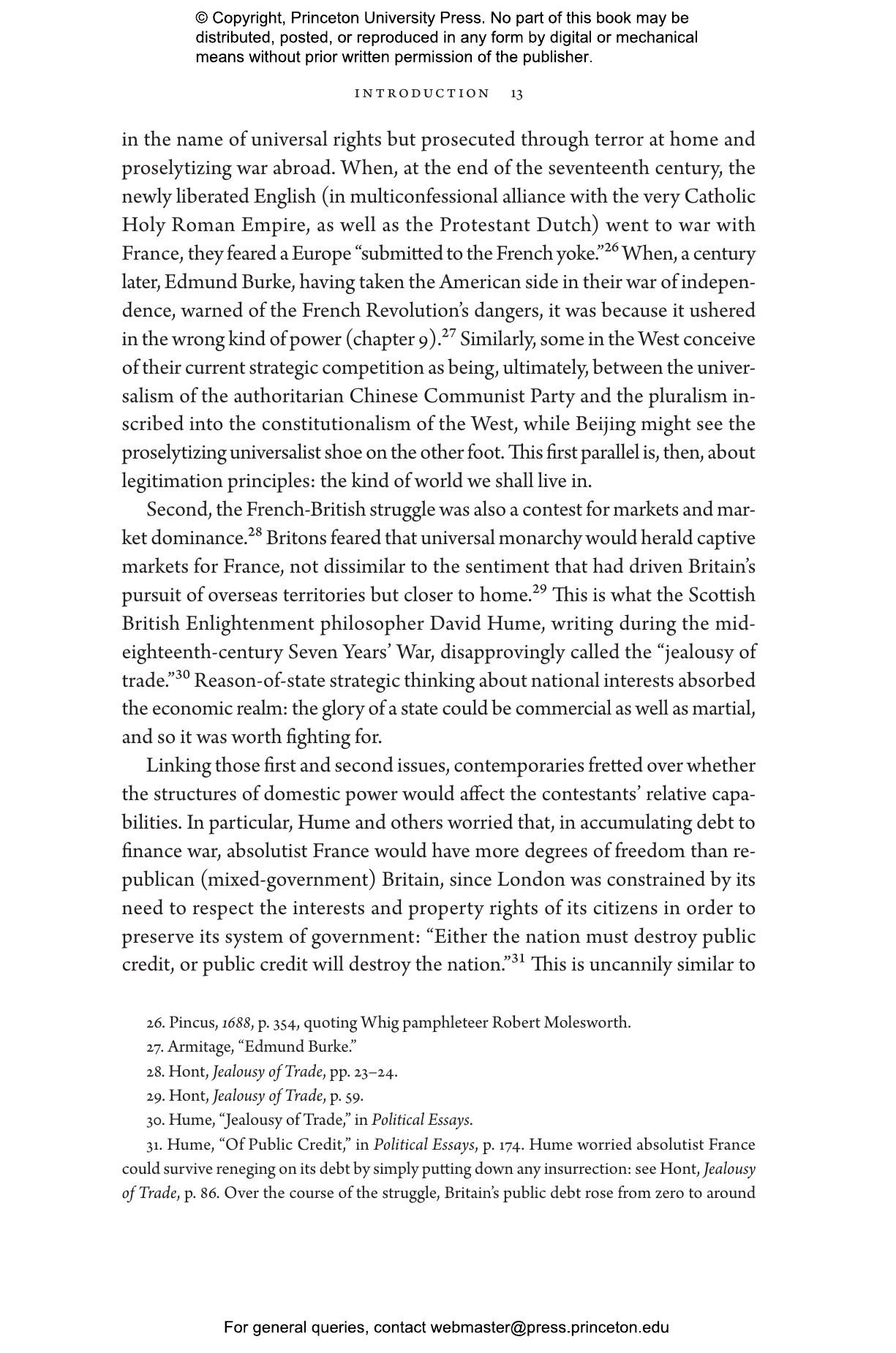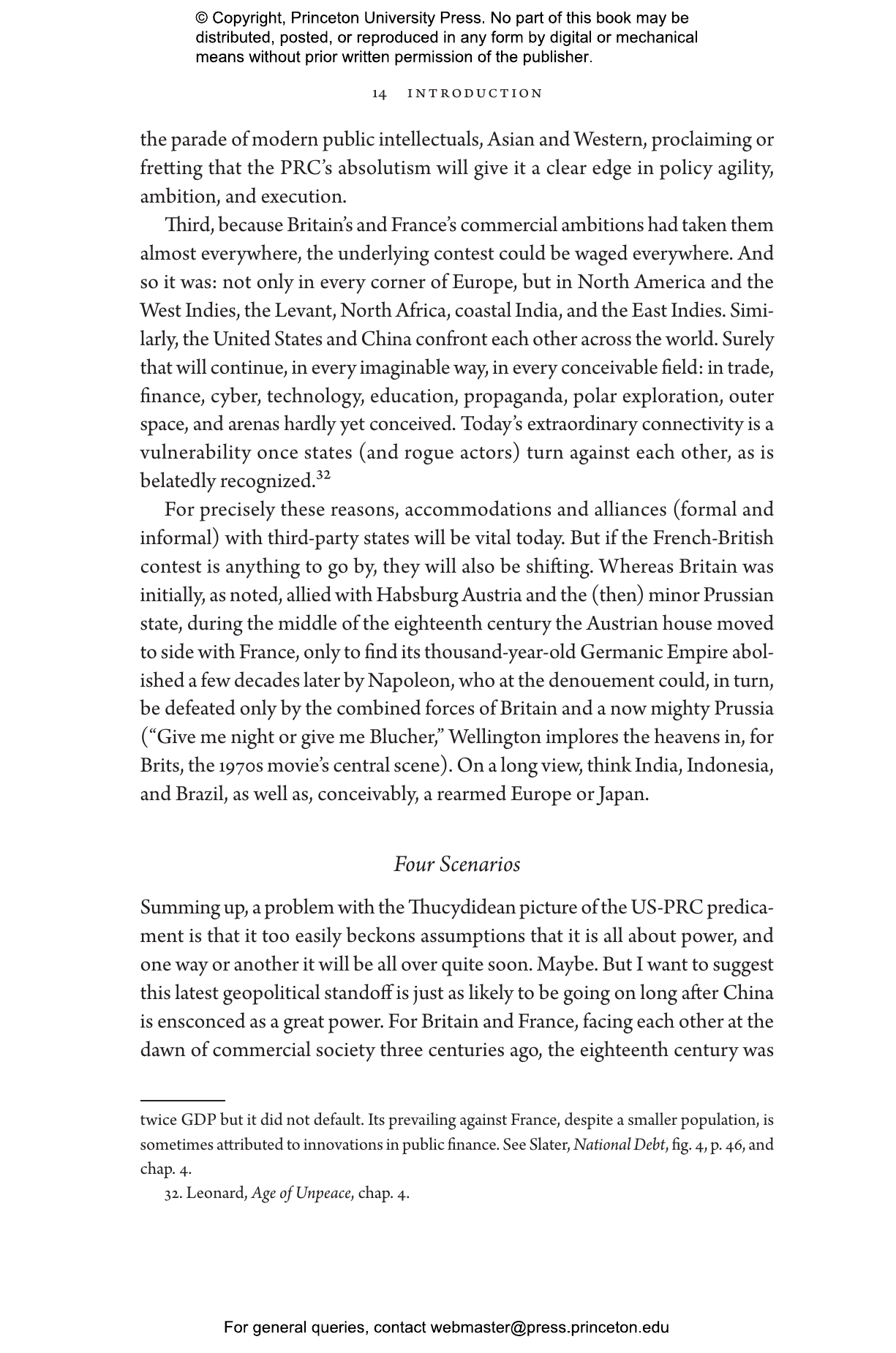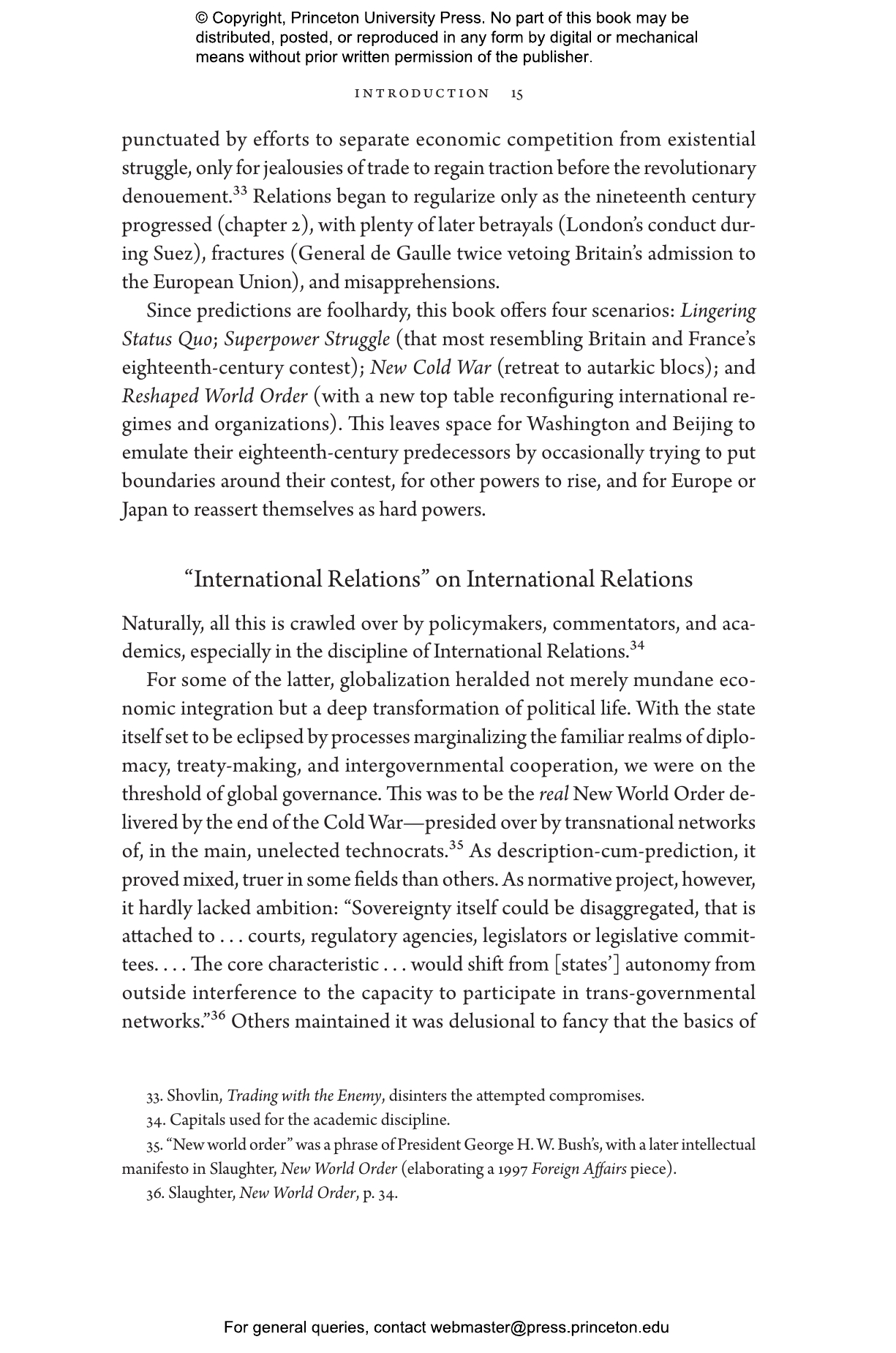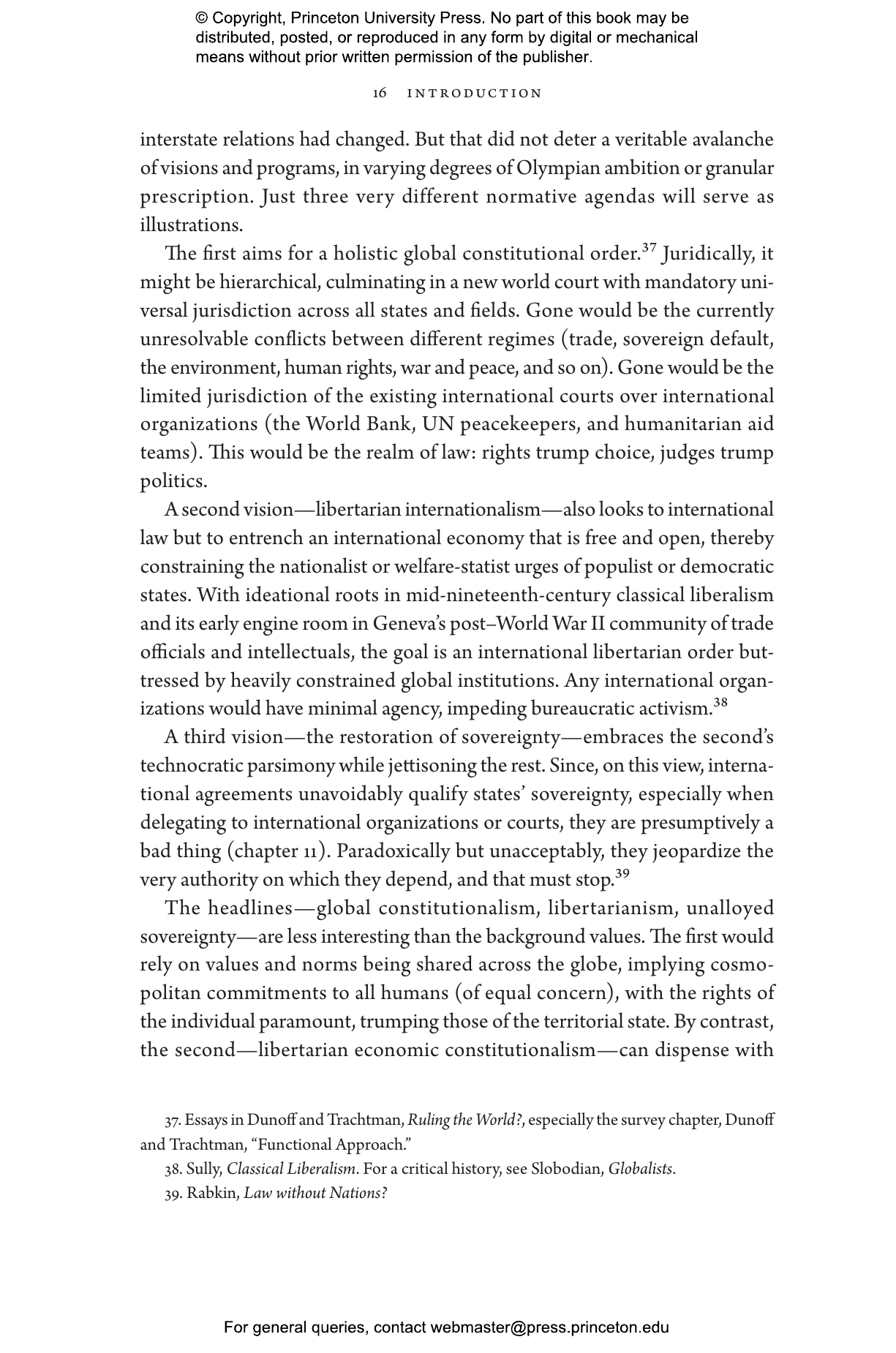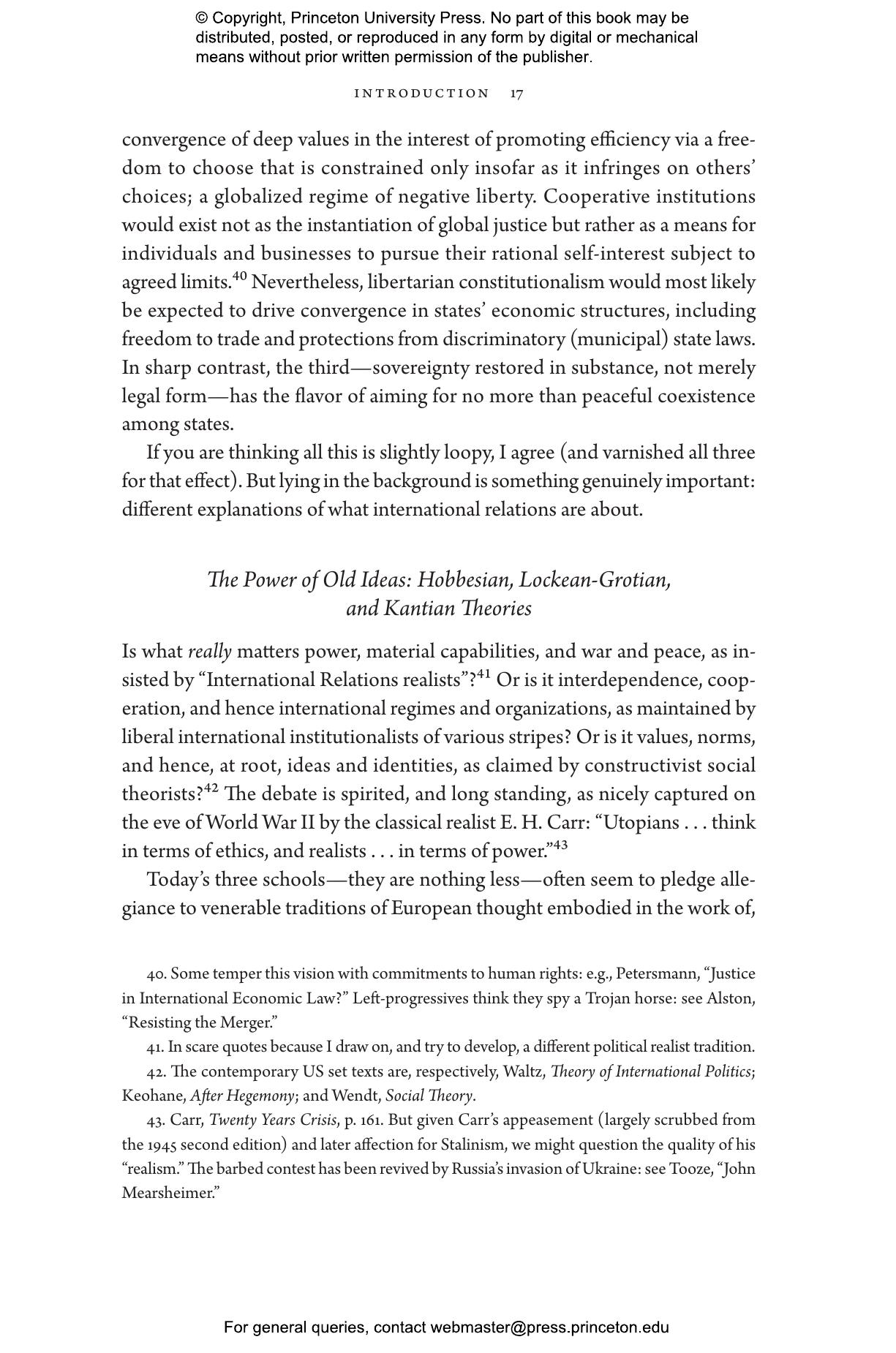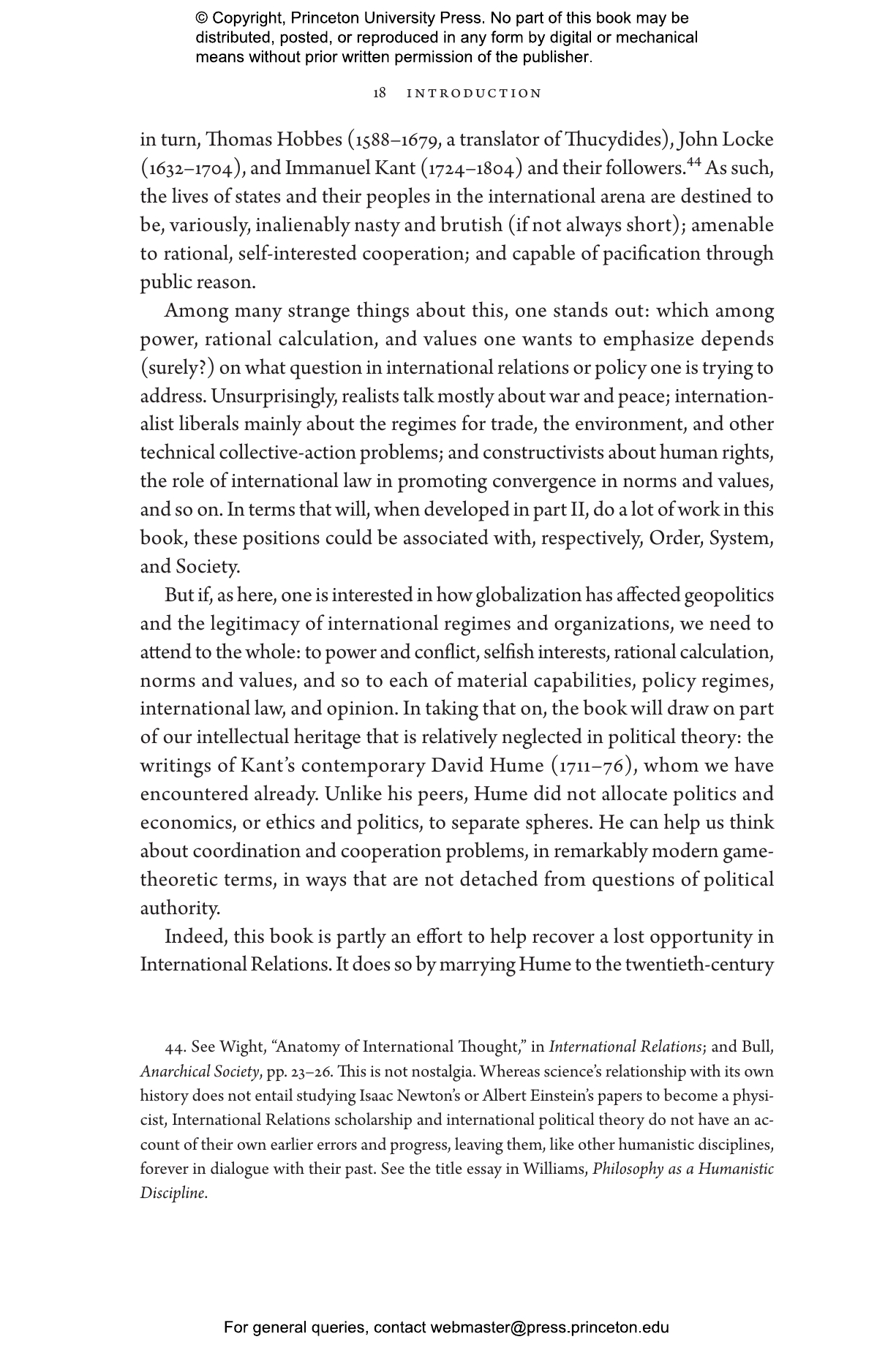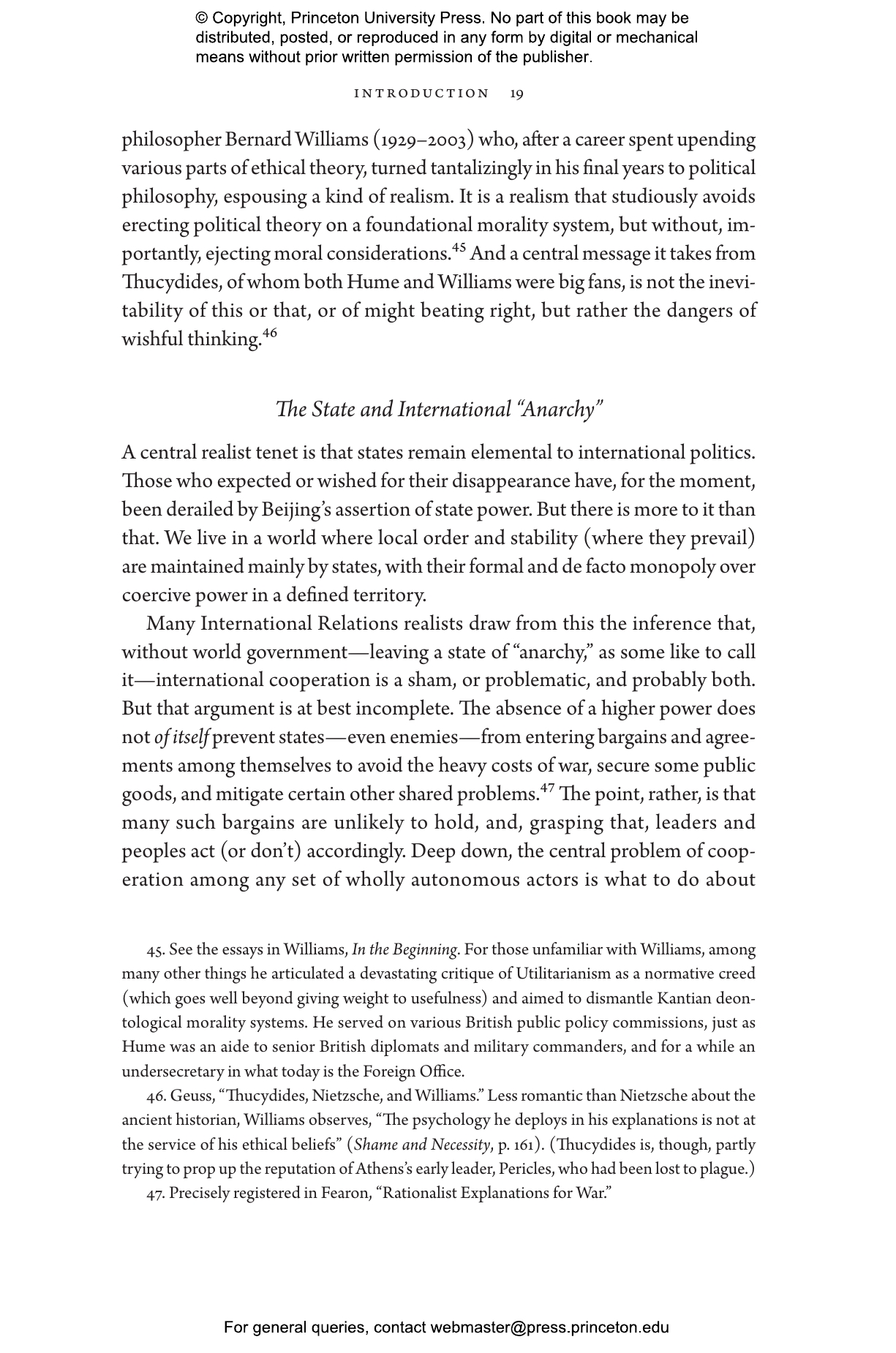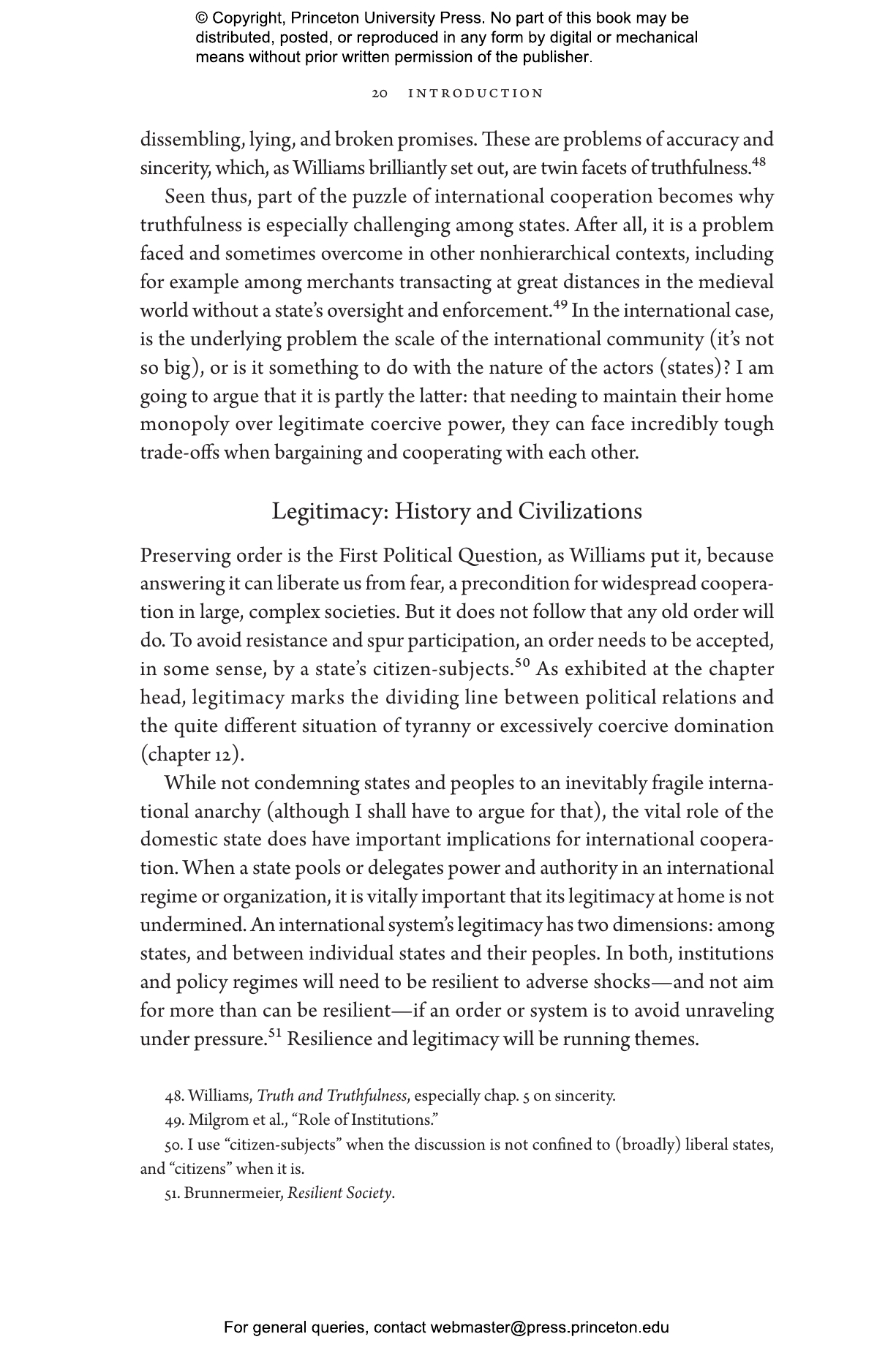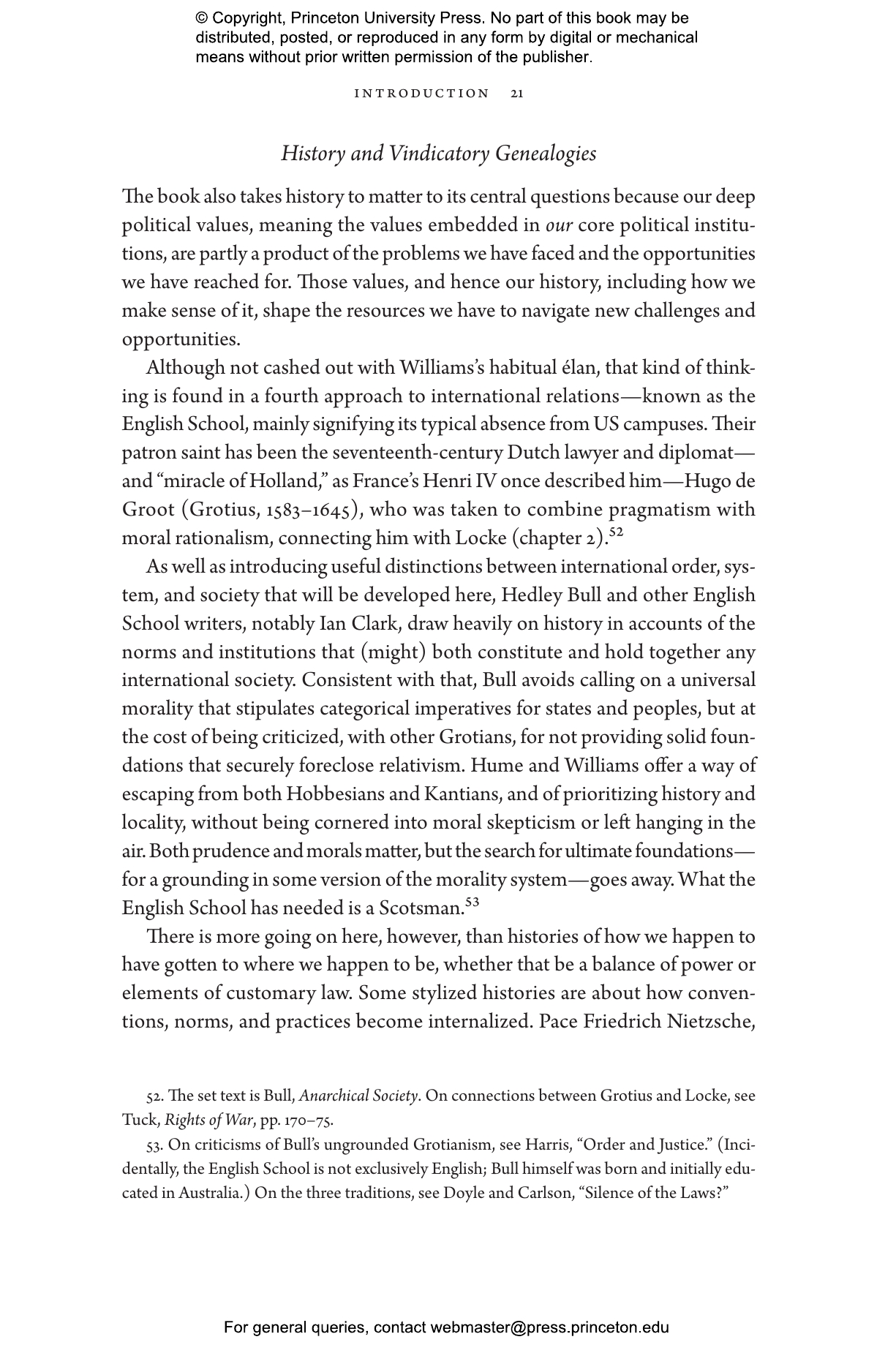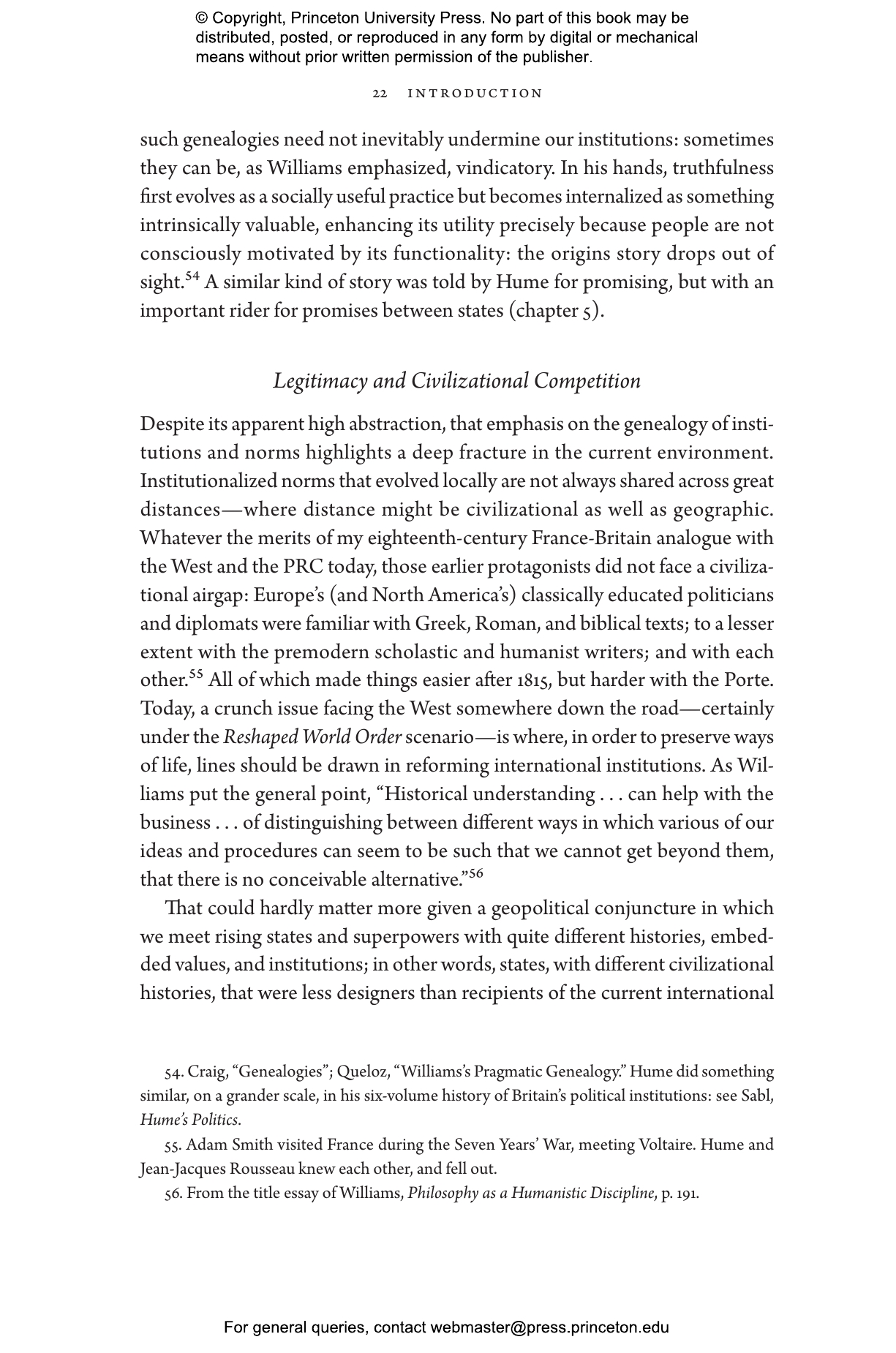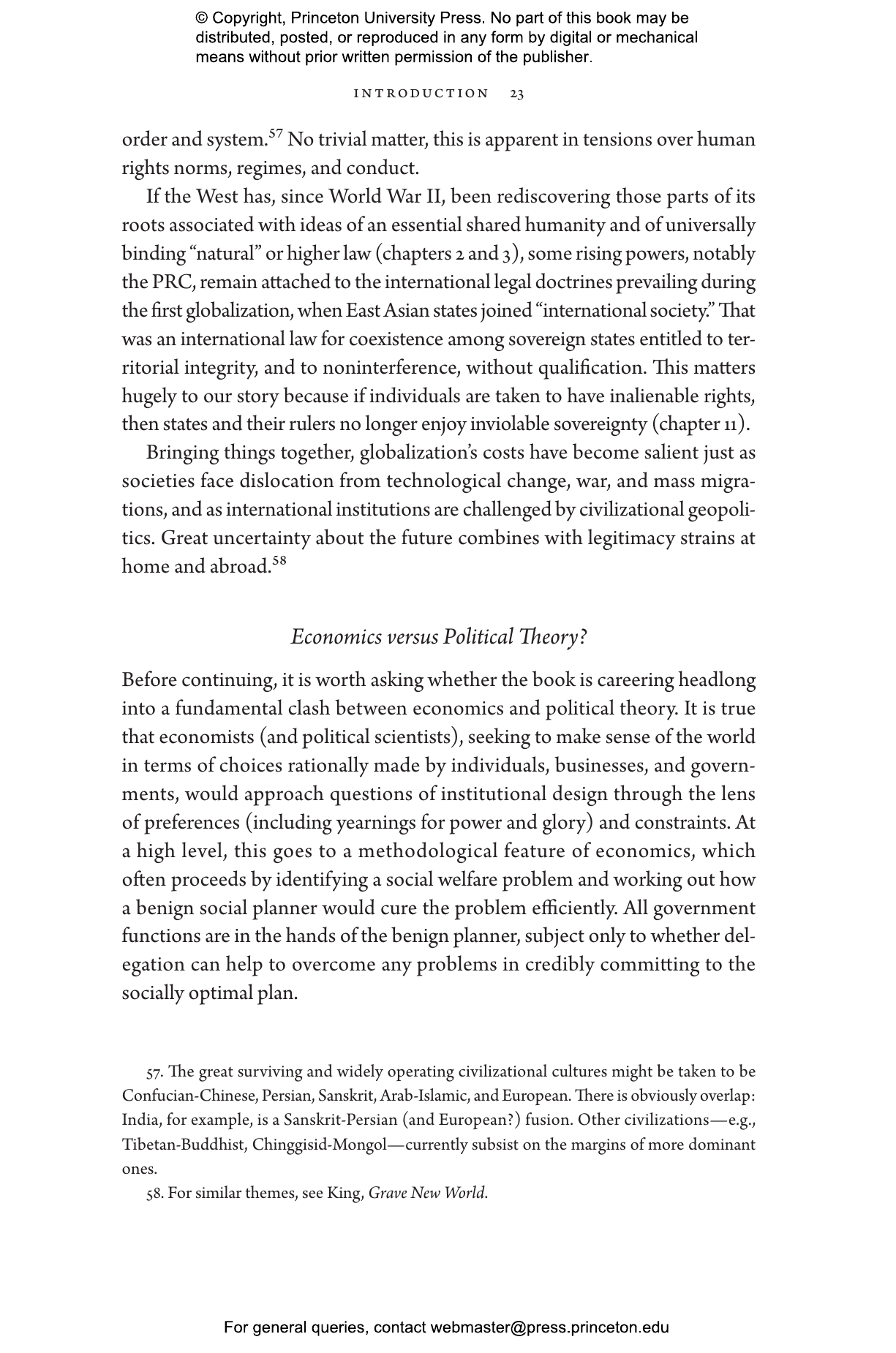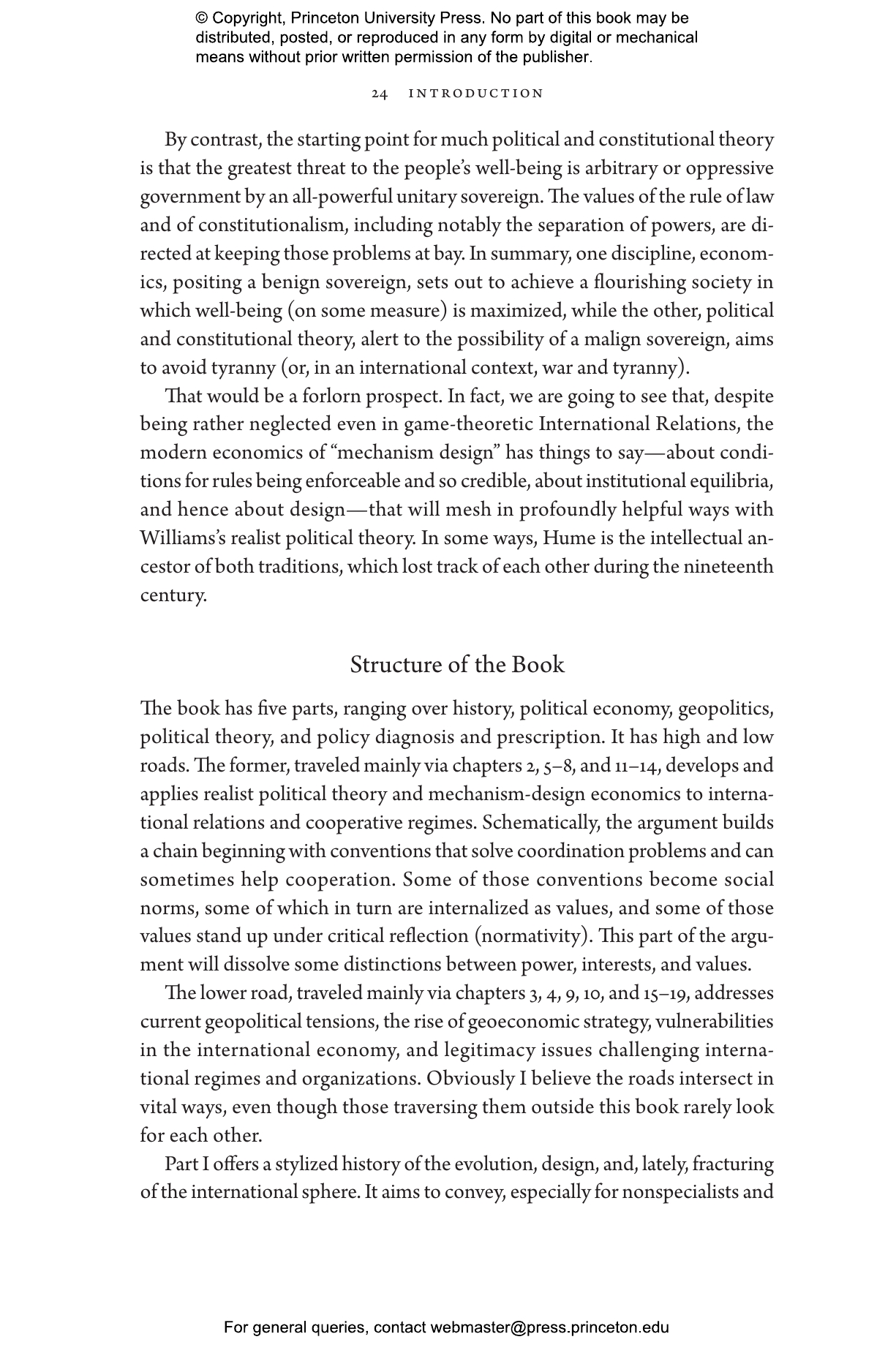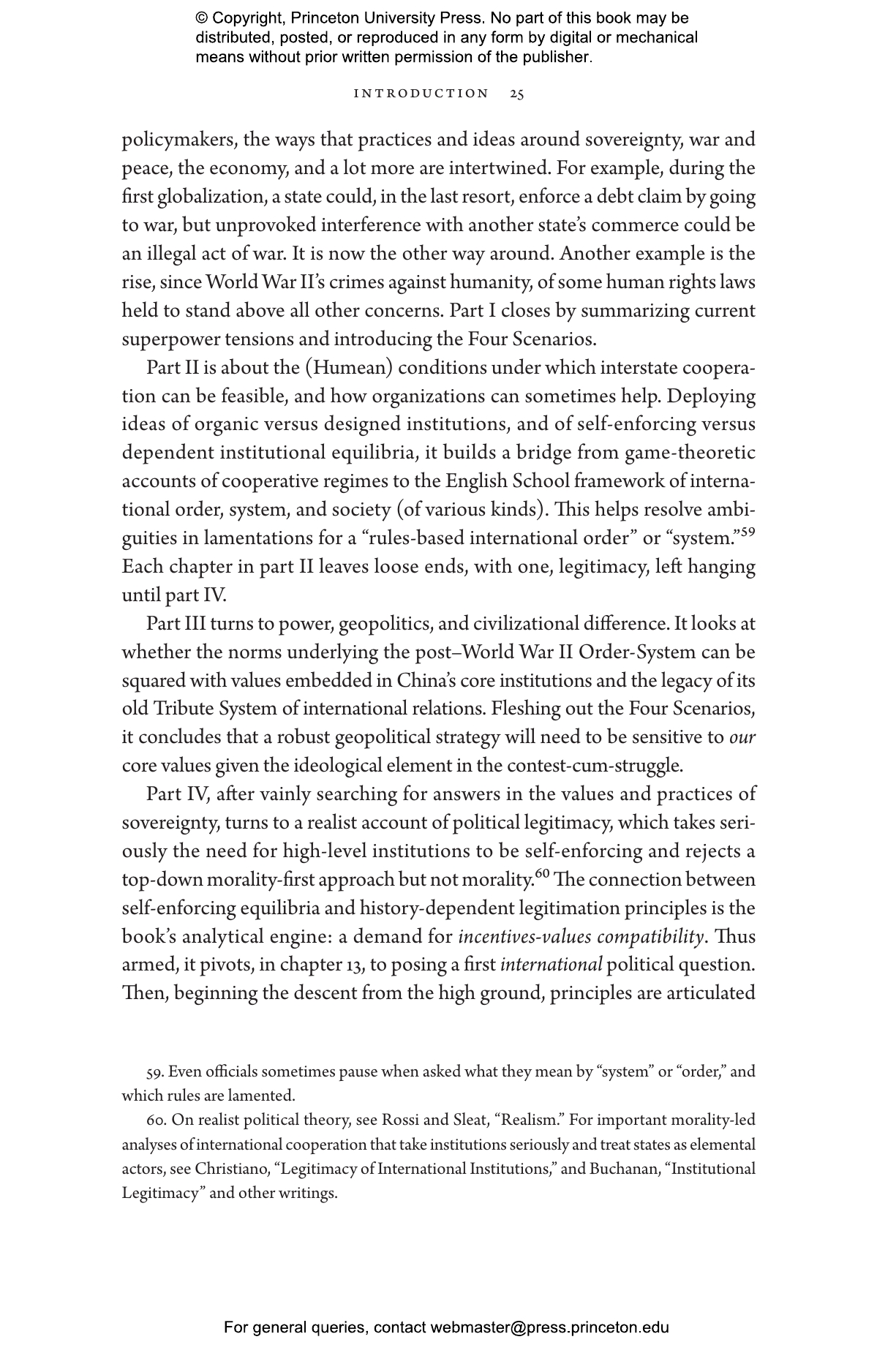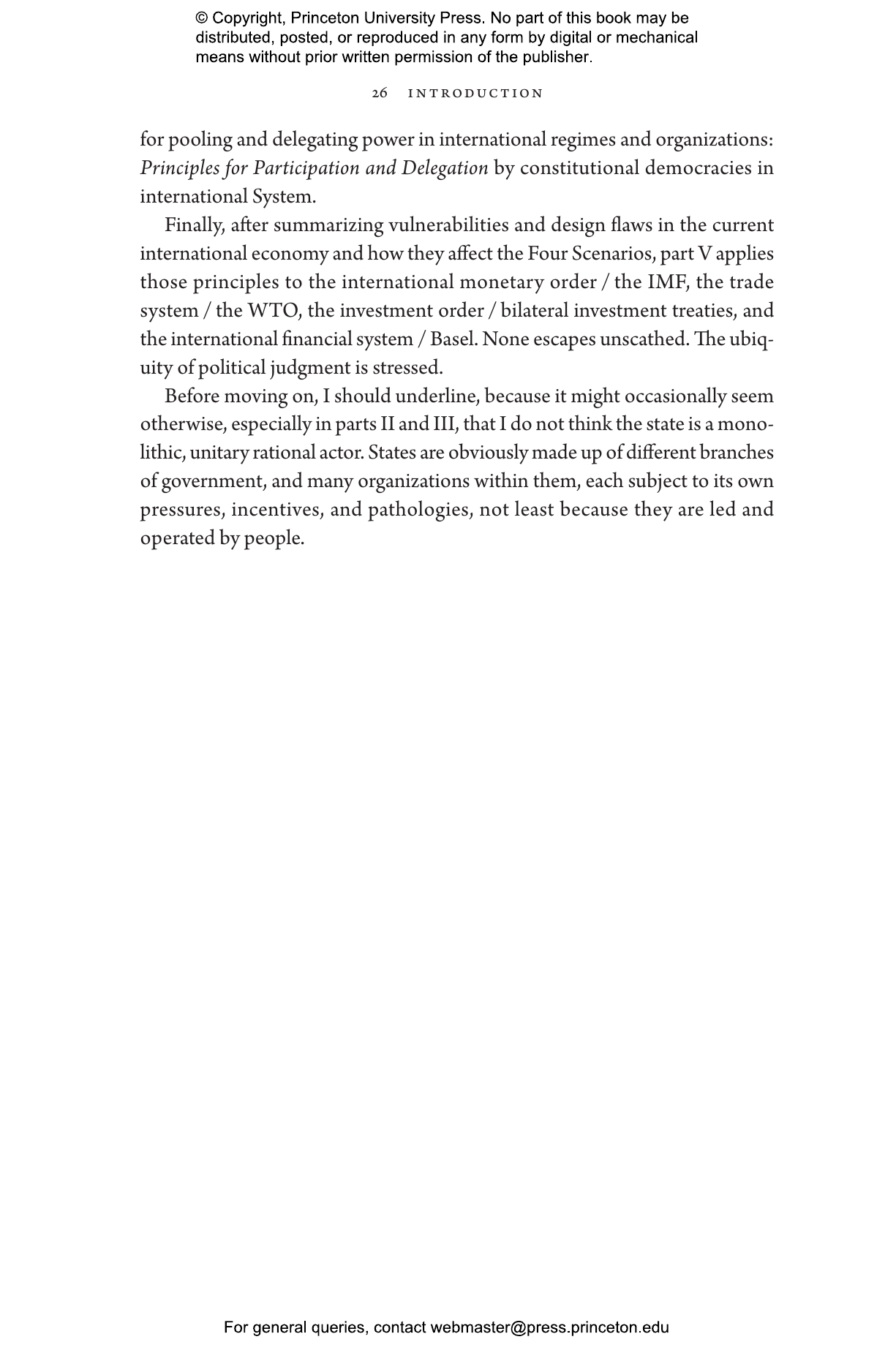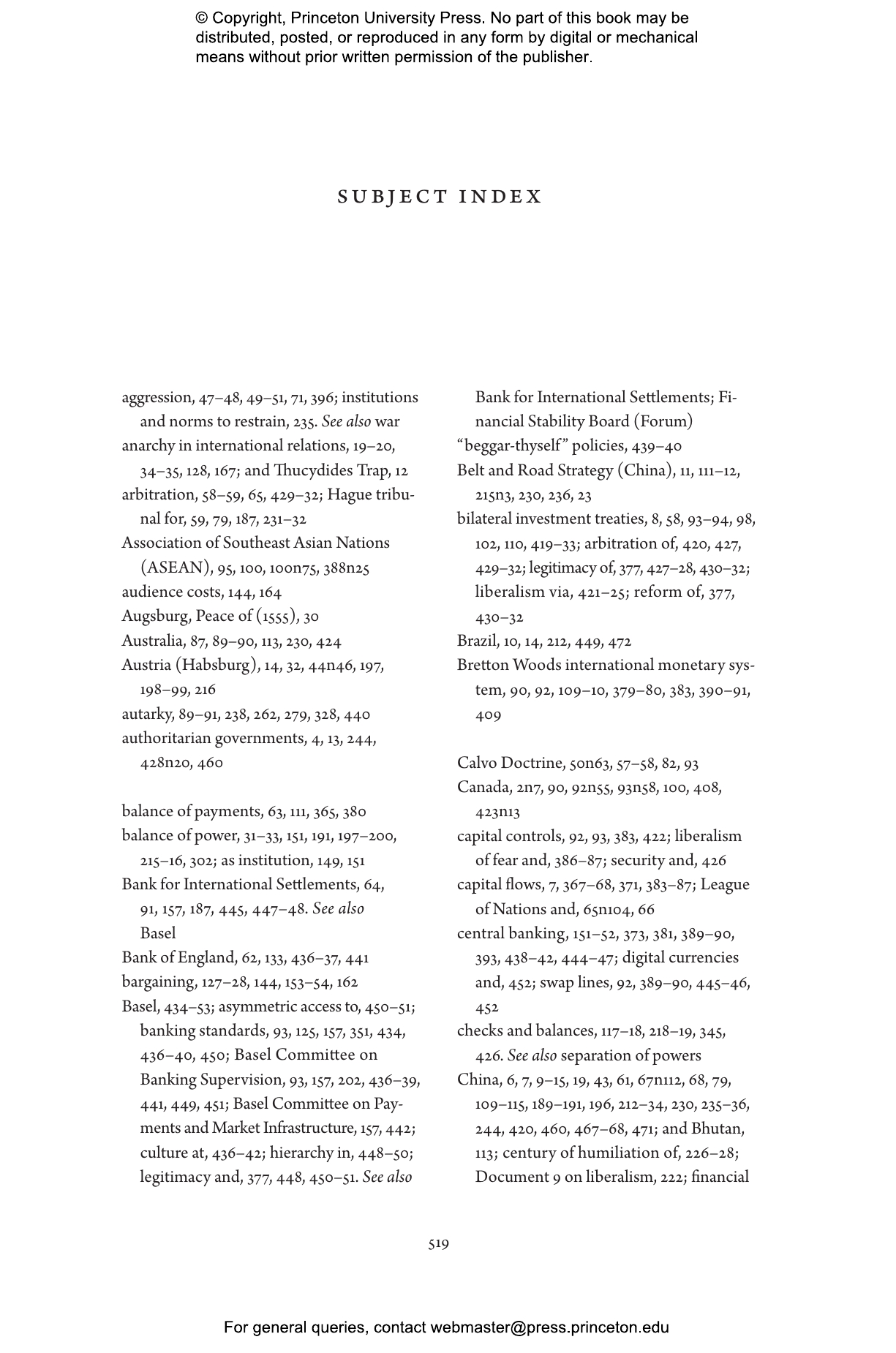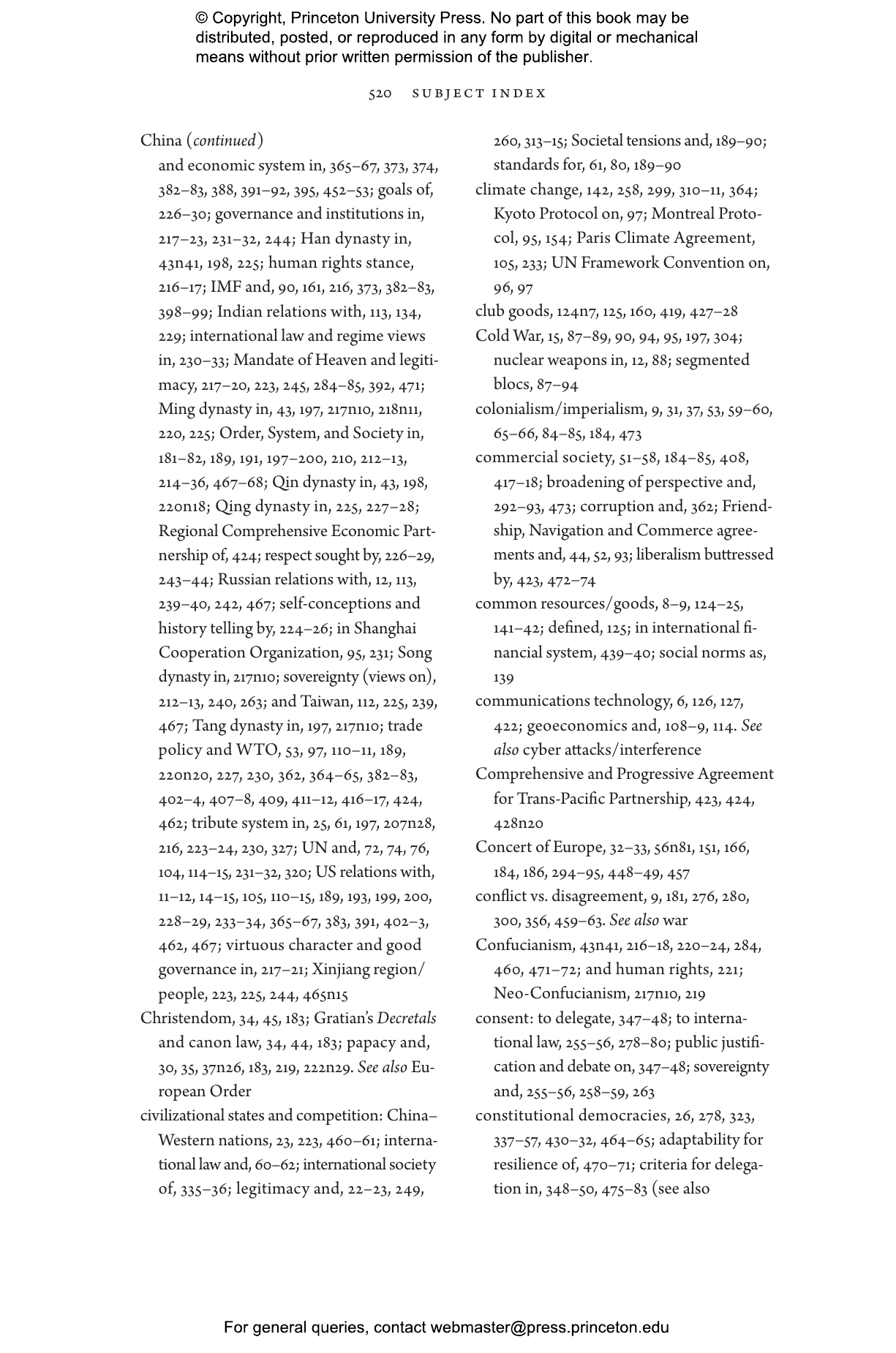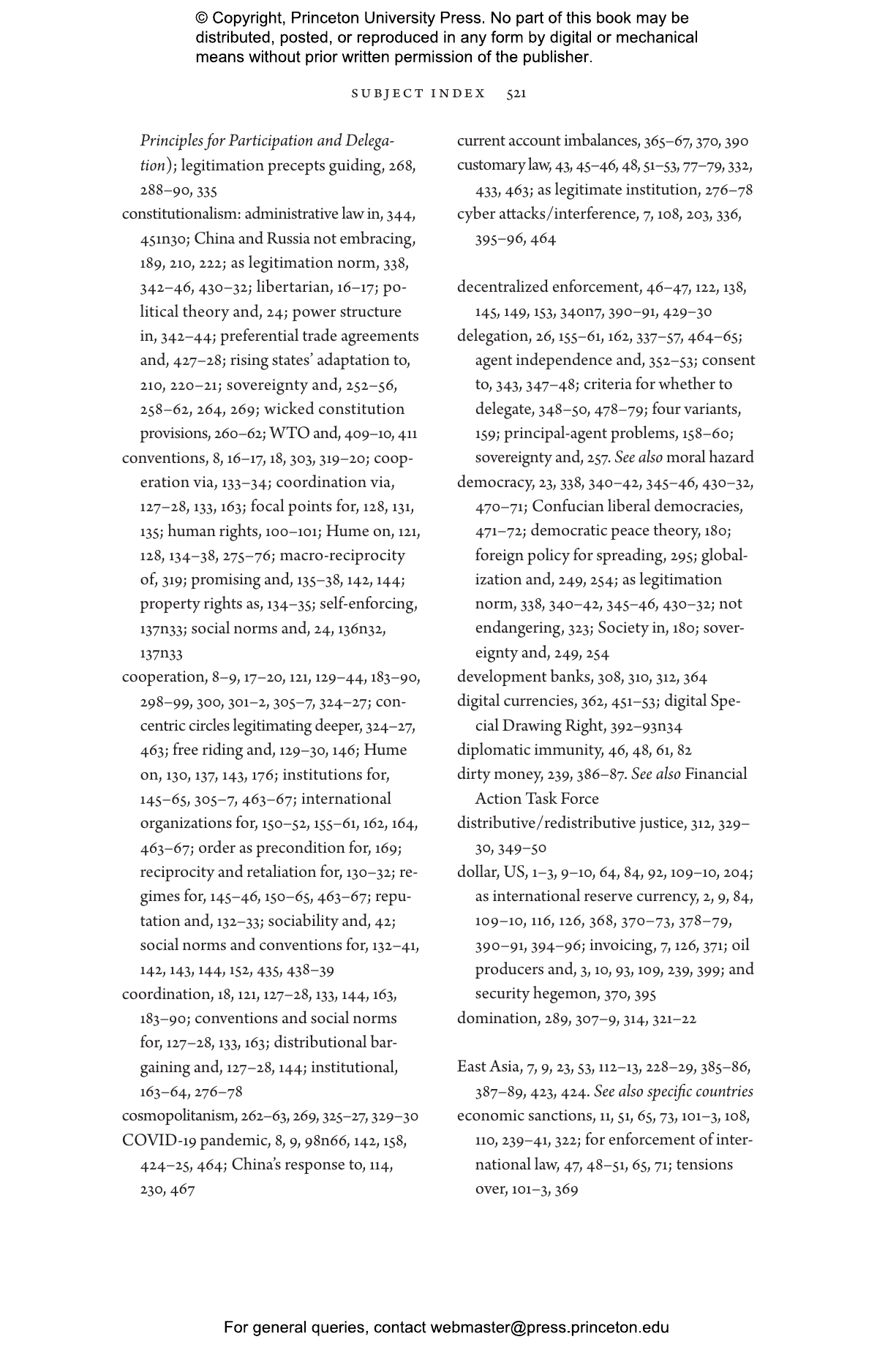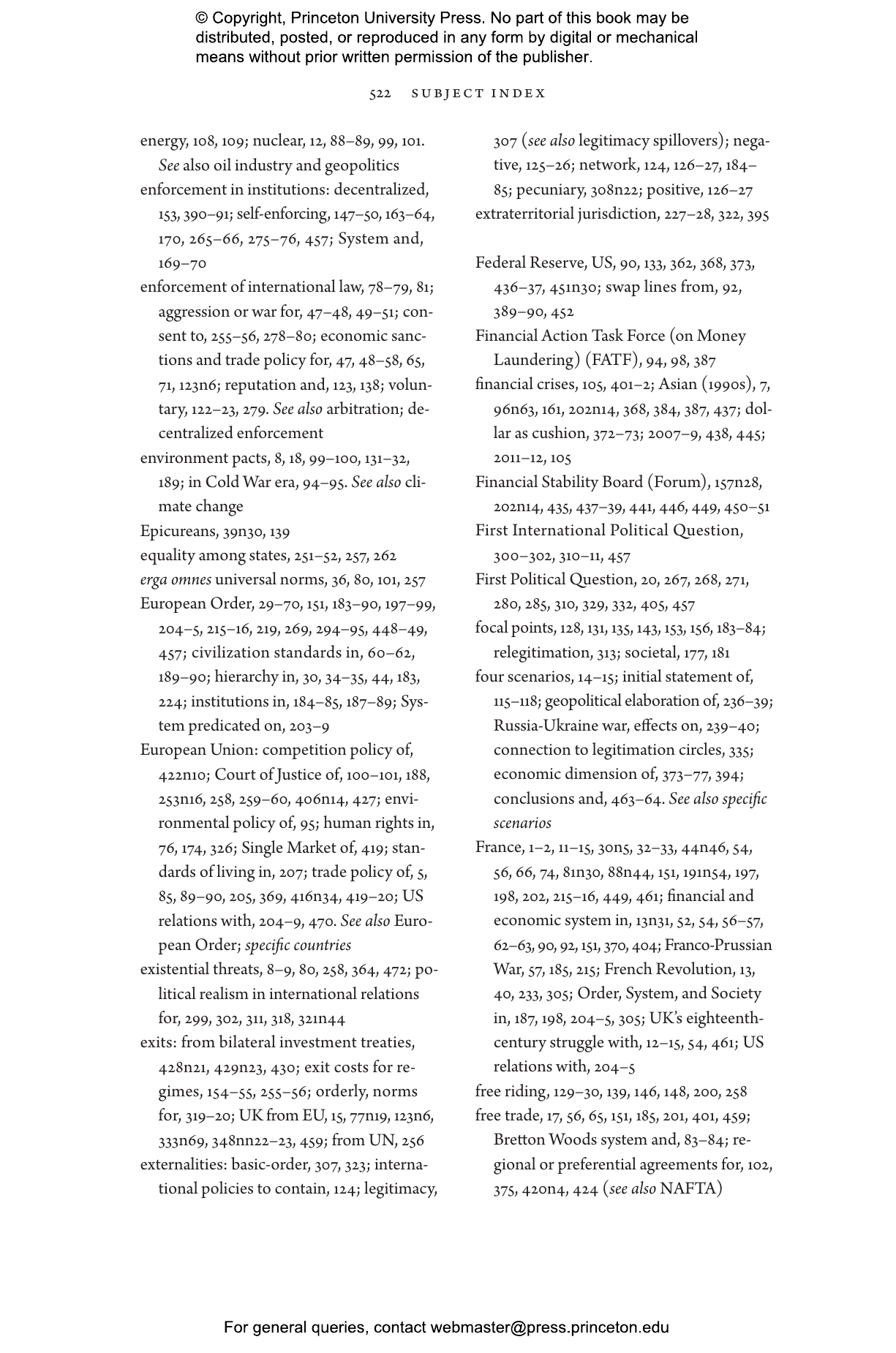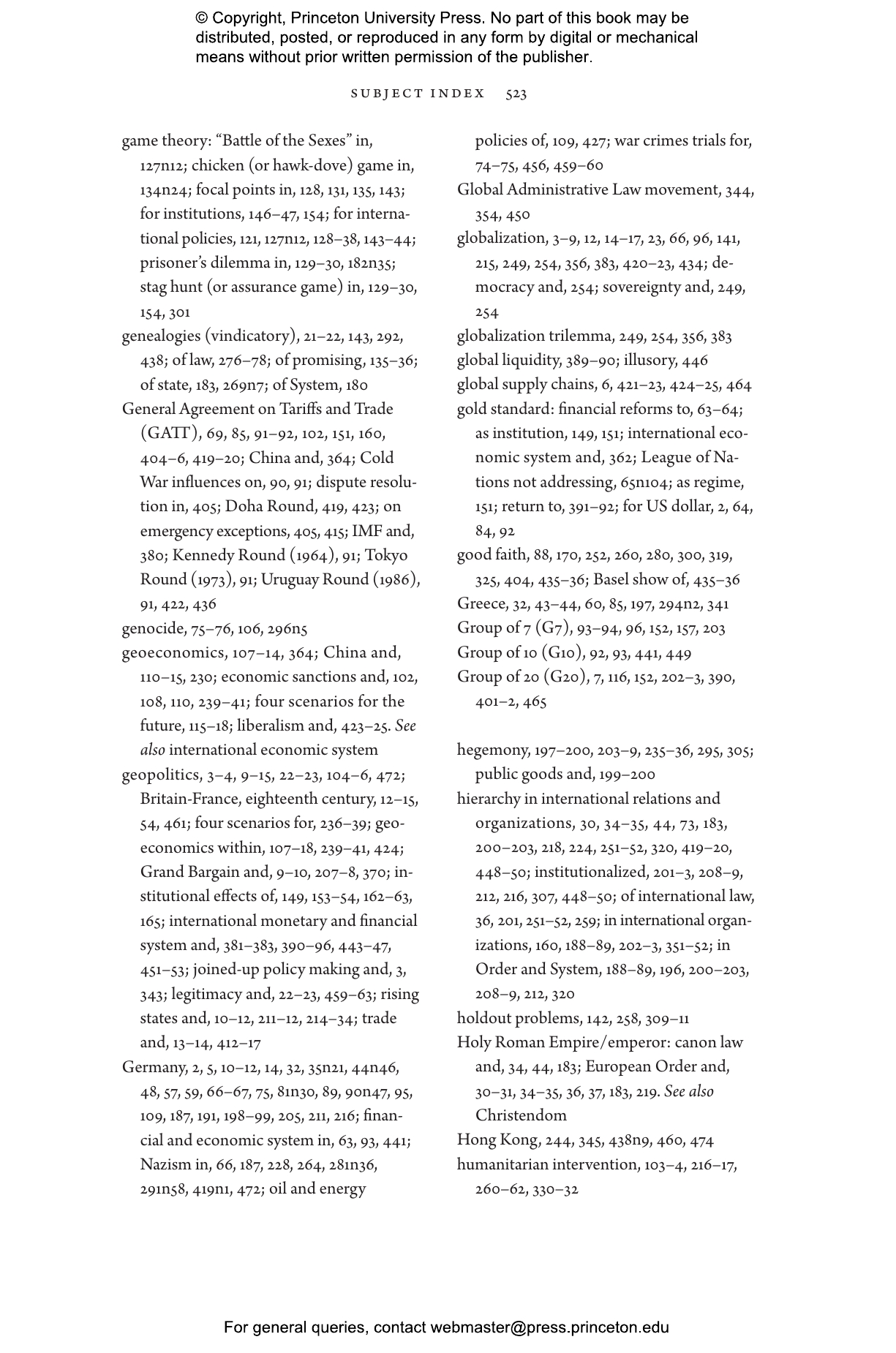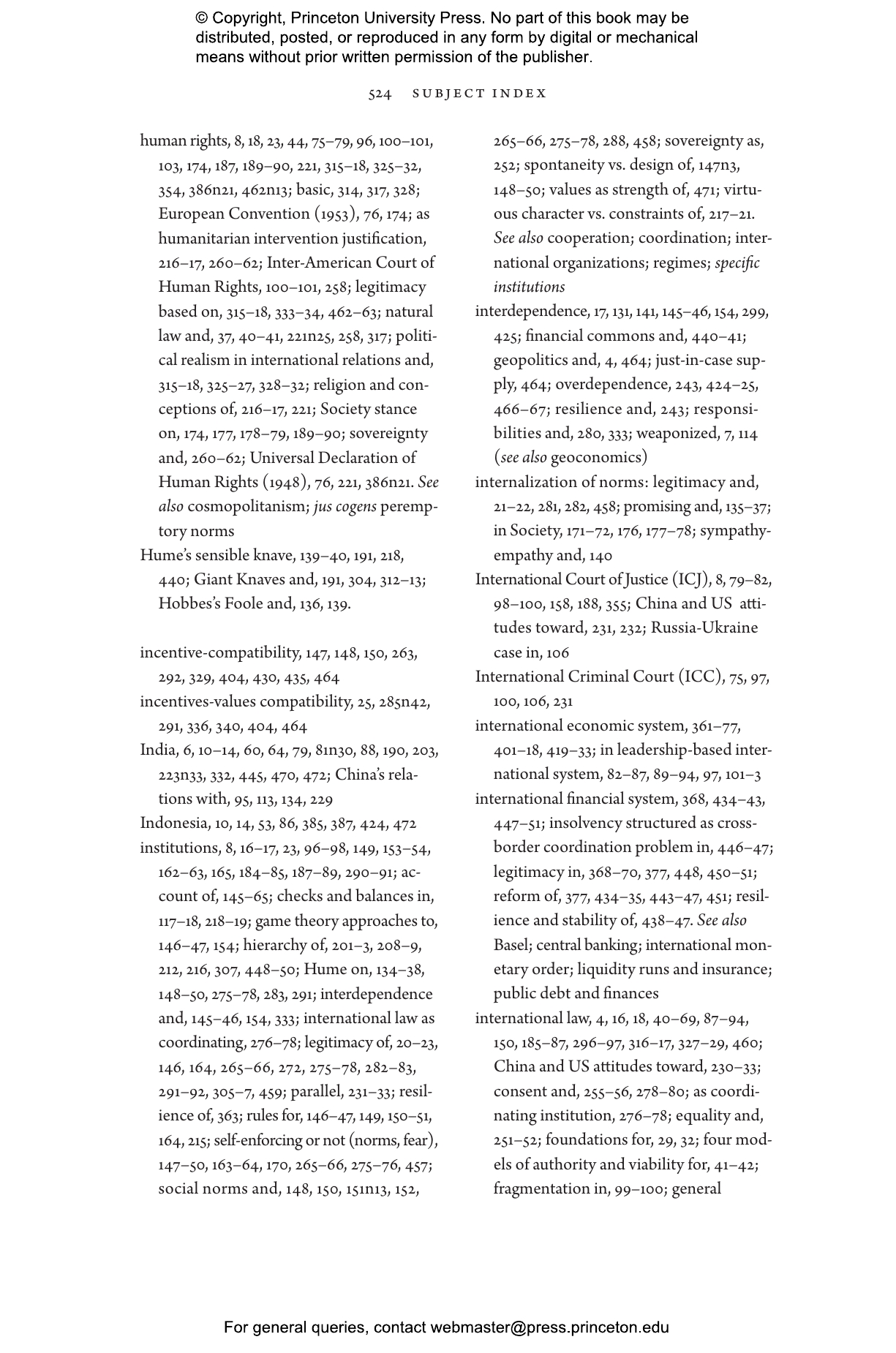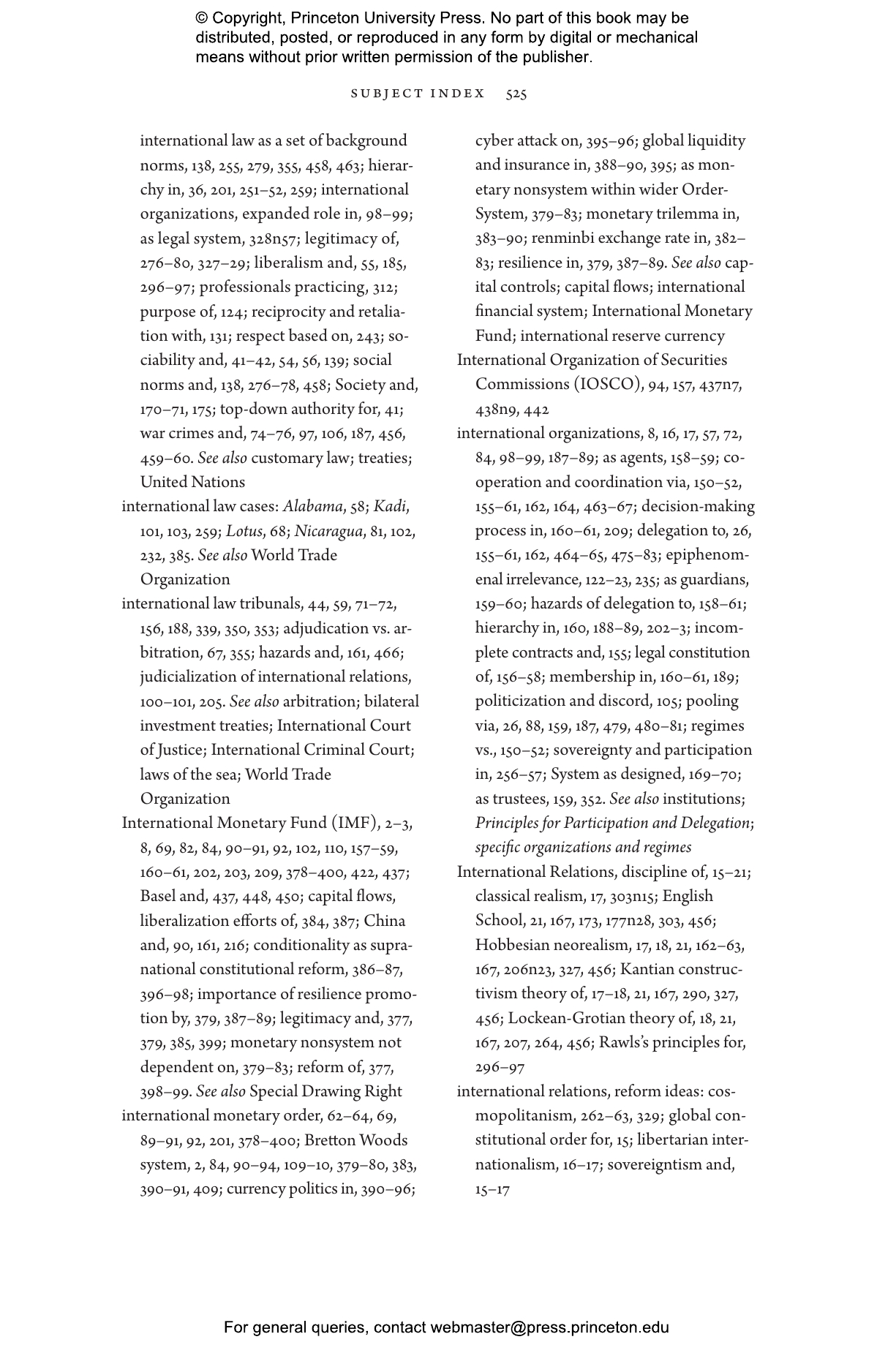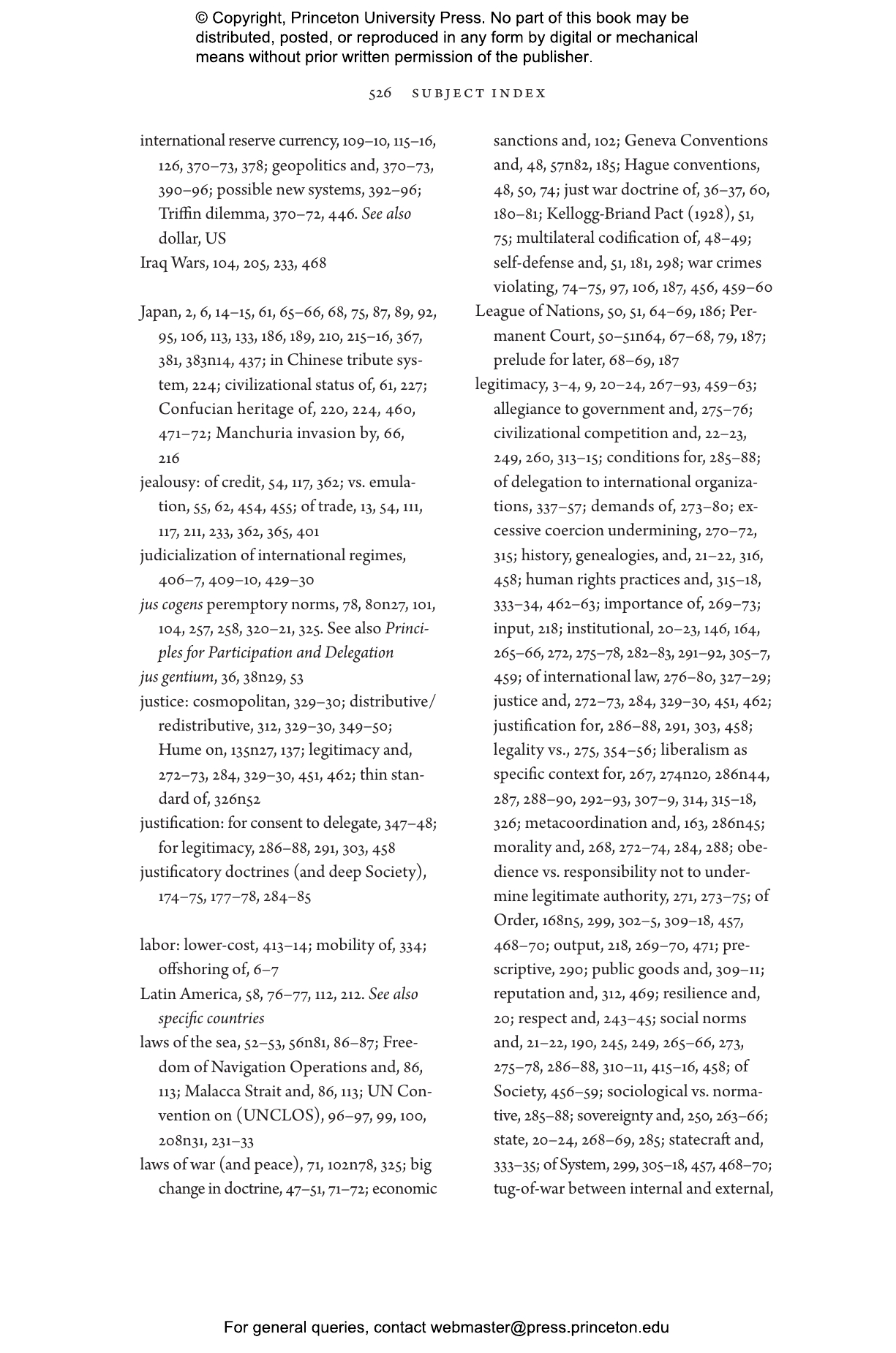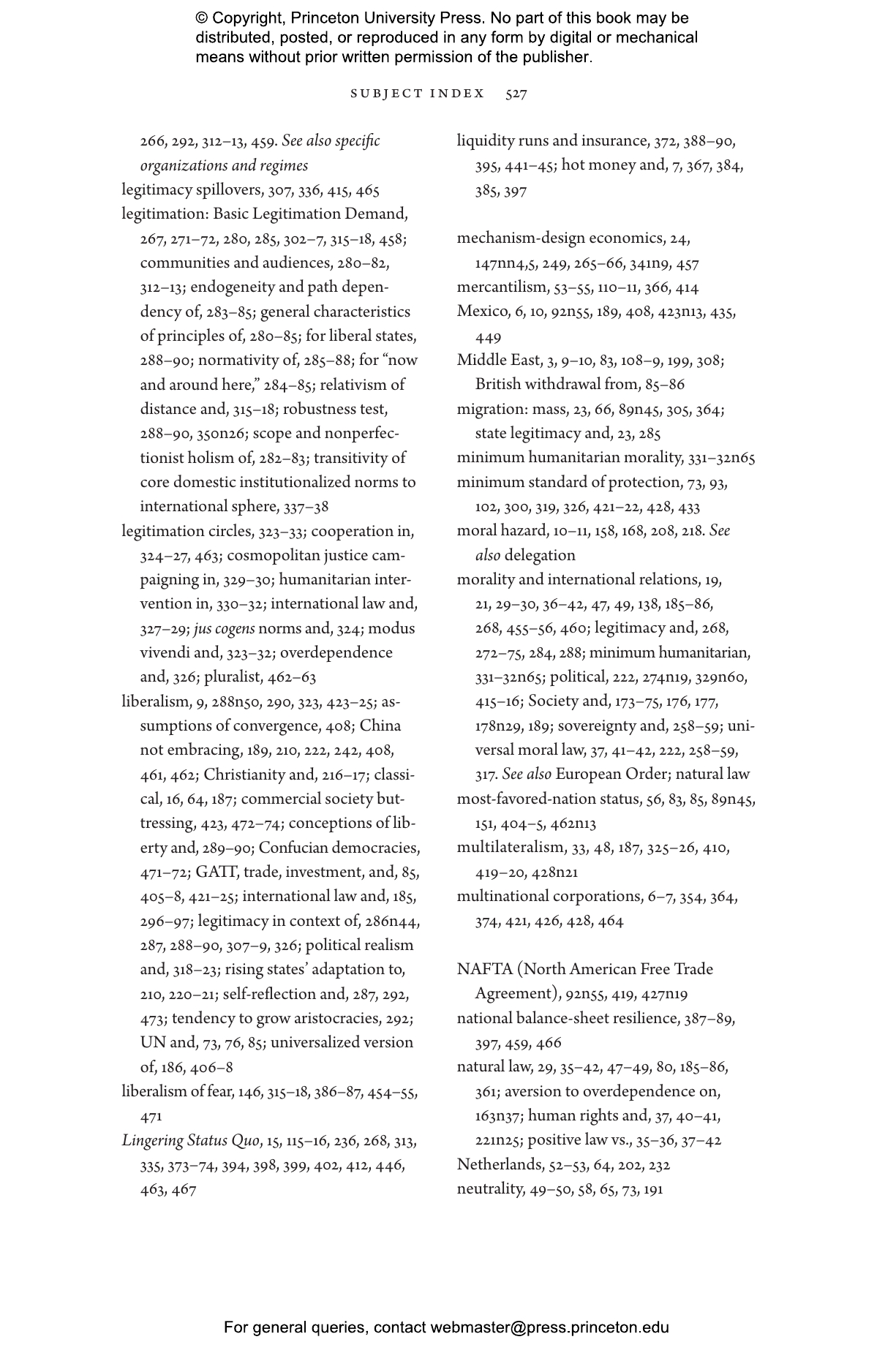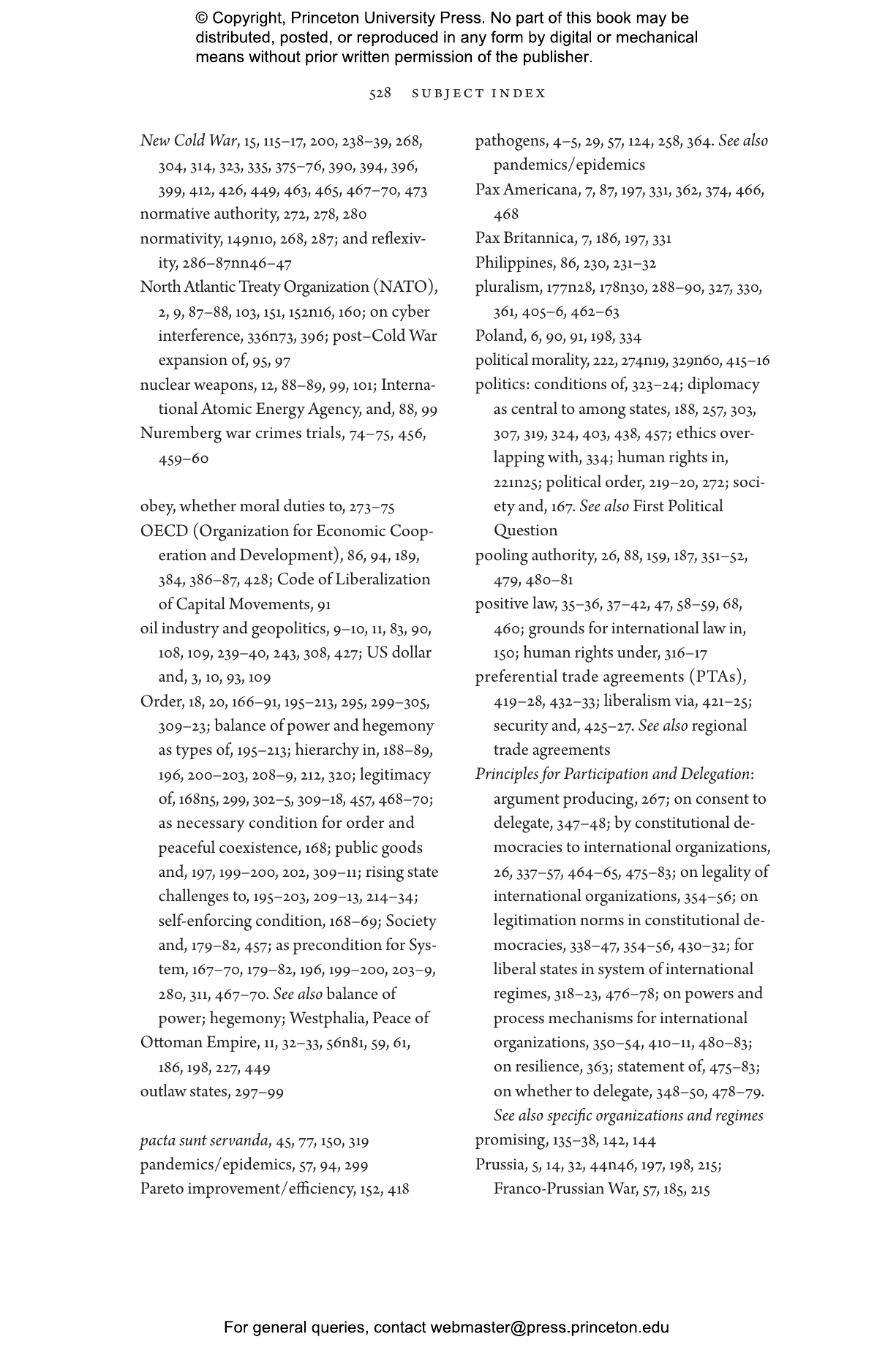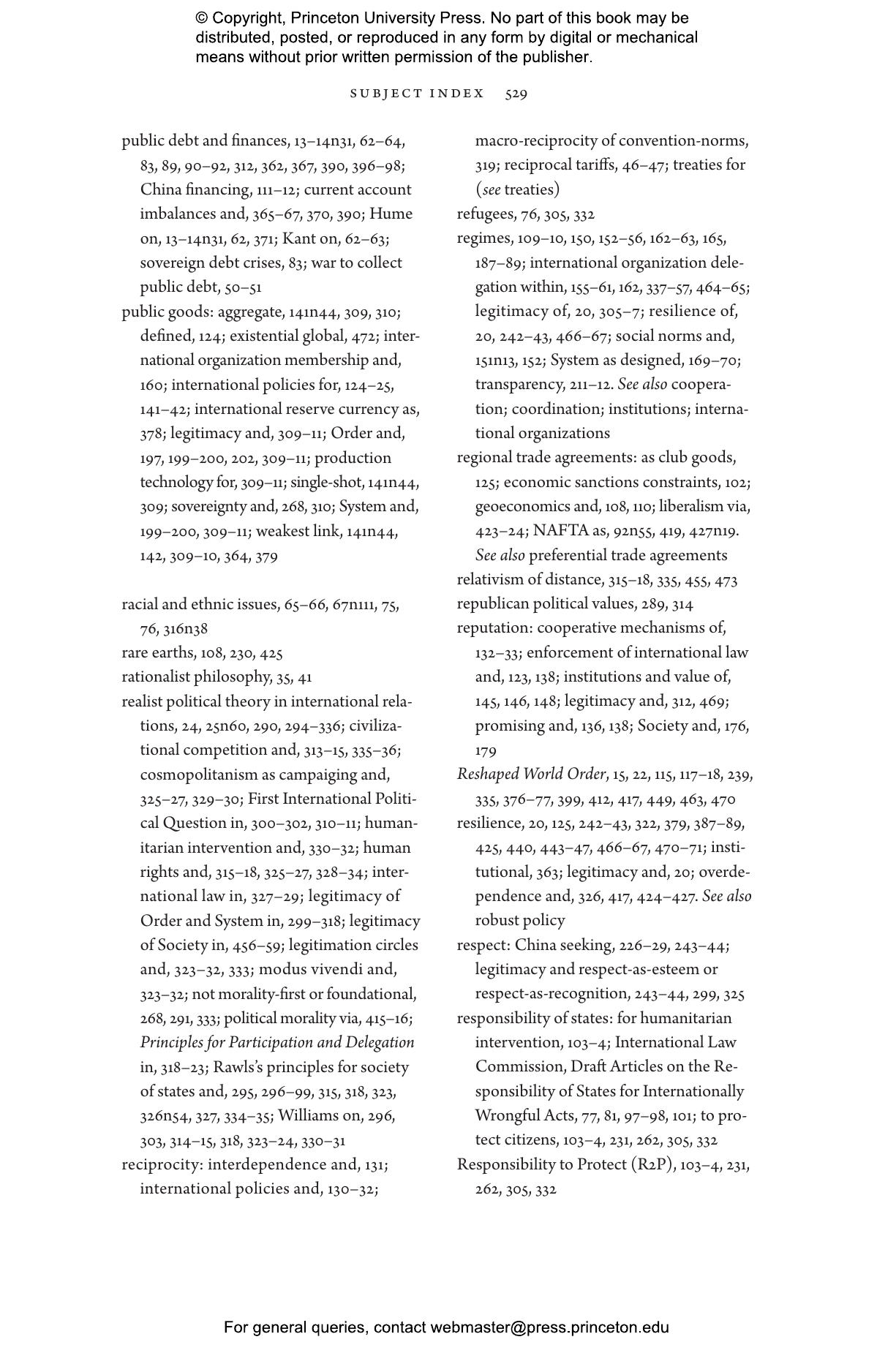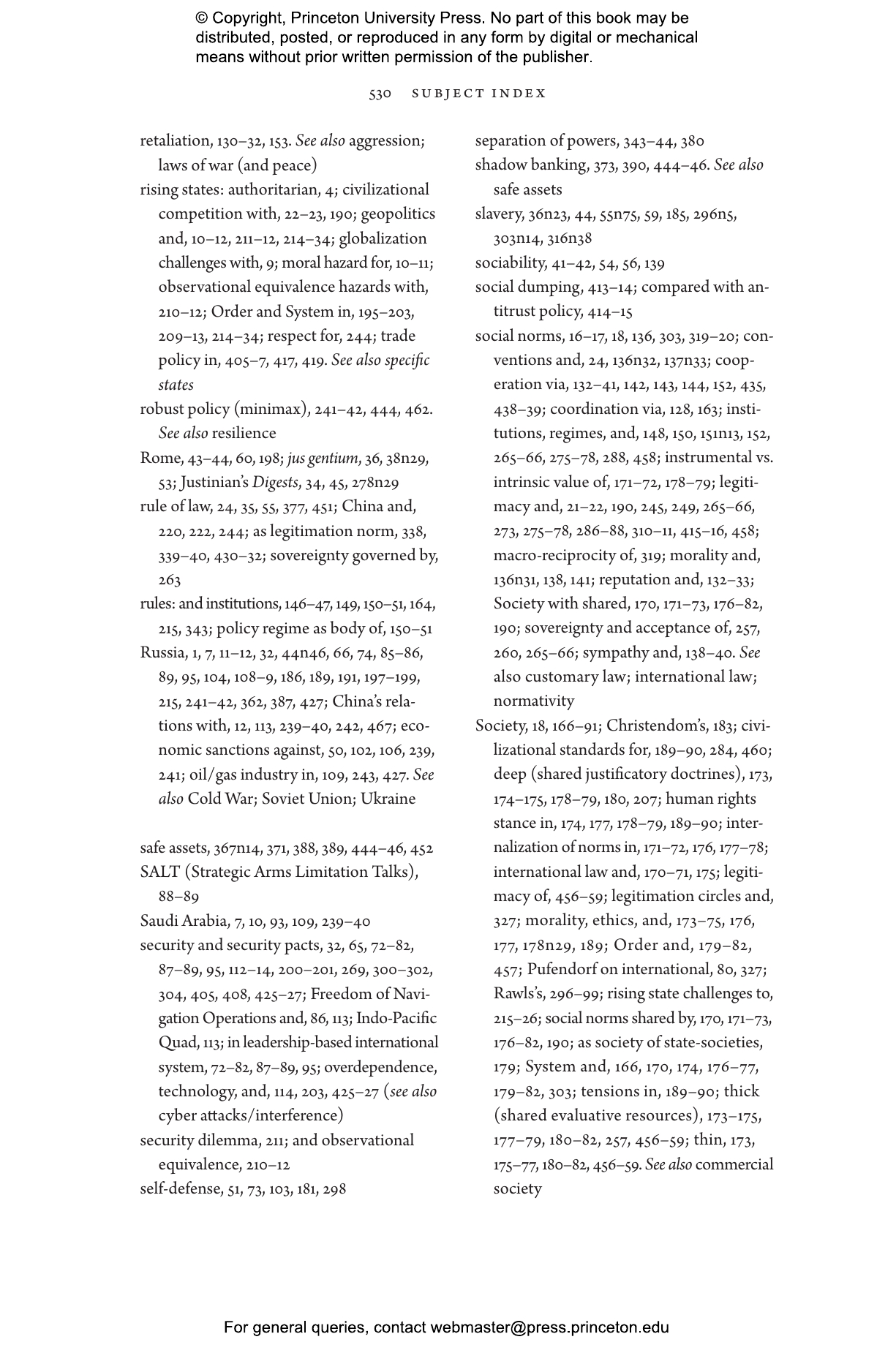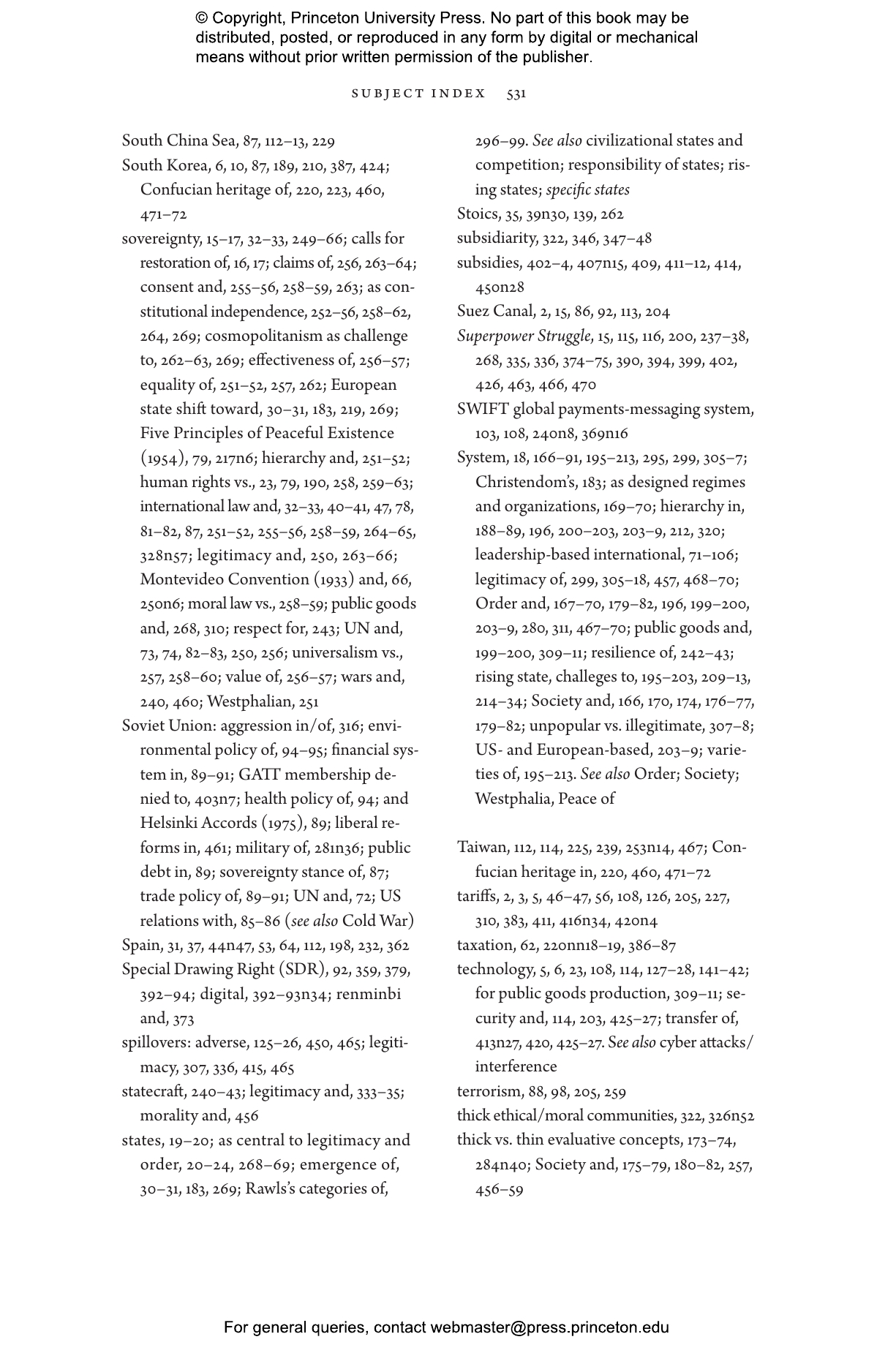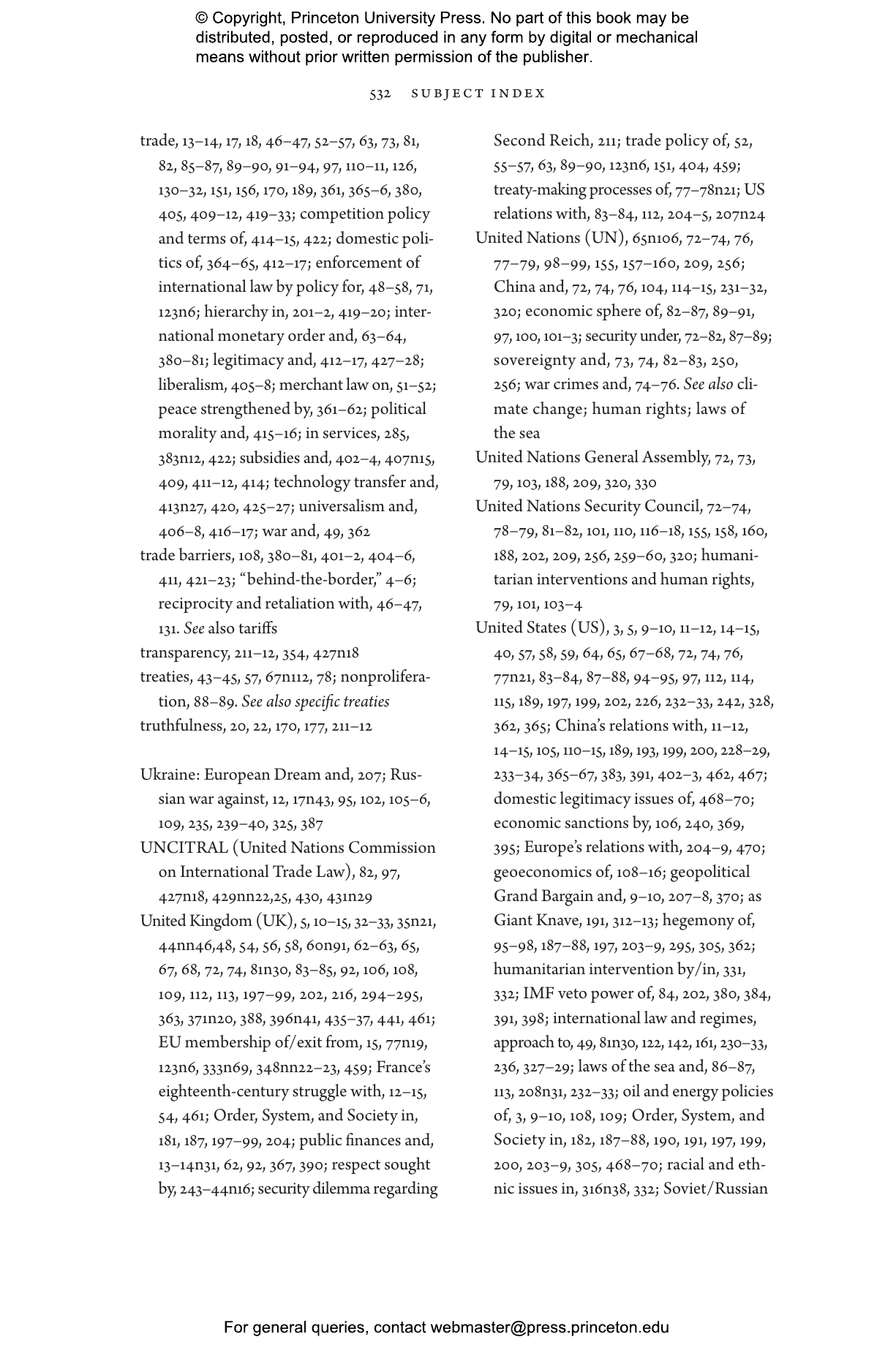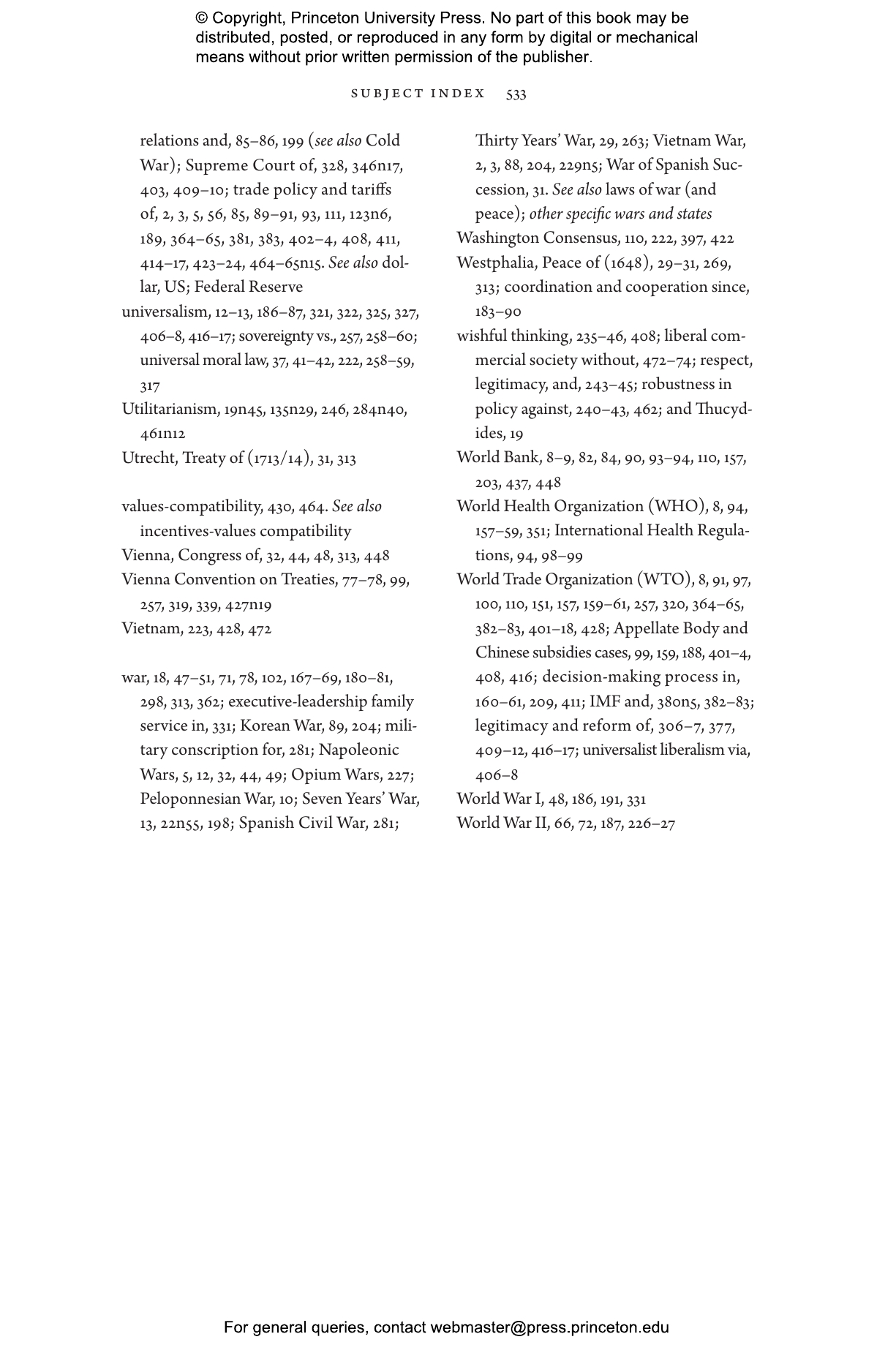Can the international economic and legal system survive today’s fractured geopolitics? Democracies are facing a drawn-out contest with authoritarian states that is entangling much of public policy with global security issues. In Global Discord, Paul Tucker lays out principles for a sustainable system of international cooperation, showing how democracies can deal with China and other illiberal states without sacrificing their deepest political values. Drawing on three decades as a central banker and regulator, Tucker applies these principles to the international monetary order, including the role of the U.S. dollar, trade and investment regimes, and the financial system.
Combining history, economics, and political and legal philosophy, Tucker offers a new account of international relations. Rejecting intellectual traditions that go back to Hobbes, Kant, and Grotius, and deploying instead ideas from David Hume, Bernard Williams, and modern mechanism-design economists, Tucker describes a new kind of political realism that emphasizes power and interests without sidelining morality. Incentives must be aligned with values if institutions are to endure. The connecting tissue for a system of international cooperation, he writes, should be legitimacy, creating a world of concentric circles in which we cooperate more with those with whom we share the most and whom we fear the least.
Awards and Recognition
- A Financial Times Economics Book of the Year
"This is an important book."—Martin Wolf, Financial Times
"Ambitious and illuminating."—Niall Ferguson
"I recommend strongly. . . the book both for those . . . studying or thinking about international relations but also for those . . . who are currently or may want in the future to engage in . . . policy."—John Bew, Professor of History and Foreign Policy, King’s College London; and Foreign Policy Advisor to the UK Prime Minister
"A book full of clever intellectual maneuvers."—Adrian Wooldridge, Bloomberg
"Keynes famously said that policymakers are distilling the frenzy of past academic scribblers. [Paul Tucker is] the rare policymaker who goes on to become an extraordinary scribbler."—Lawrence H. Summers, Bloomberg Television
"An important new book. . . . Global Discord is a must-read for anyone wanting to understand the prospects for 21st-century geopolitics, and possible trade-offs facing the West."—Vic Duggan, Irish Times
"An extremely important and striking book in many ways. It makes a contribution in terms of political ideas, and so is of interest to students of the history of political thought, but also political economy, international relation, and of course . . . major and important geopolitical policy recommendations and analyses."—Richard Bourke, University of Cambridge
"[A] fascinating . . . [and] commanding book."—David Westin, Bloomberg Television
"The book has extraordinary sweep and breadth of learning. It straddles the line between academic work and rigorous book for generalists. . . . Invigorating."—Krishna Guha, Financial Times
"[Tucker] likens the relationship between America and China to that between Britain and France between 1688 and 1815. . . . The parallel is instructive because it is a reminder that the rivalry is one with which the world is likely to have to live for decades to come."—Simon Nixon, The Times
"We need serious strategic thinking about how the situation is changing and what to do about it. One of the few people earnestly engaged in that project is Paul Tucker."—Juliet Samuel, The Telegraph
"Wide-ranging and erudite."—Diane Coyle, Enlightened Economist
"A true tour de force."—Jack Snyder, author of Human Rights for Pragmatists
"A tremendously rich book. One of the most interesting books in terms of how [it] combines[s] various aspects of international politics that I have read for a very long time."—Arne Westad, Yale Professor
"I learned a lot and can only applaud the breadth of vision and ambition. Bravo."—Kevin Gardiner, Society of Professional Economists
"The great achievement of this profound and important book is that it offers a way of thinking about international politics that helps us to know what better decisions will look like. It might even assist some of those charged with making such decisions to do a better job. Books like this do not come along very often; when they do, one can only hope they are read as widely as possible."—Paul Sagar, The Critic
"This is a lovely book."—Jeff Colgan, Richard Holbrooke Associate Professor in the Department of Political Science and Director of the Climate Solutions Lab at the Watson Institute for Public and International Affairs, Brown University
"A must-read for anyone wanting to understand the various possible trade-offs for 21st-century geoeconomics."—T.C.A. Ranganathan, Book Review
"Global Discord is one of the most comprehensive and judicious books on [international affairs]. It seamlessly combines political theory, International Relations theory, international law, international political economy and a wealth of experience that Sir Paul Tucker accumulated during a long career as a central and international banker."—Peter Wilson, International Affairs
"The depth, breadth, and scope of this book are truly extraordinary."—Carla Norrlöf, Project Syndicate
“Paul Tucker writes with the erudition of a scholar and the realism of a practitioner. Connecting political theory, economics, history, and international relations, he sketches possible futures for the global system while nudging the reader toward an international order that must pass a legitimacy test within democracies. This book packs a powerful argument—common sense yet radical in its implications.”—Dani Rodrik, author of Straight Talk on Trade: Ideas for a Sane World Economy
“In this extraordinarily impressive book, Paul Tucker makes a strong case for how the international economy should be dealt with in the context of geopolitics. Tucker is a rare thinker, combining in-depth knowledge in economics, political science, and moral and political philosophy with extensive experience at the highest levels of international finance. I know of no one else who could have written a book of the scope and depth of Global Discord.”—Allen Buchanan, Duke University
“Tucker develops a totally novel theory of international relations that foregrounds conditions of cooperation and gives priority to the questions of legitimacy and the legitimation of power. A highly valuable contribution to realist political thought.”—Matt Sleat, author of Liberal Realism
“With a thoughtful analysis that is remarkably wide and deep in scope, Paul Tucker offers an insightful liberal response to systemic global problems that have been the traditional focus of realists in international relations.”—Roger Myerson, Nobel Laureate in Economics
